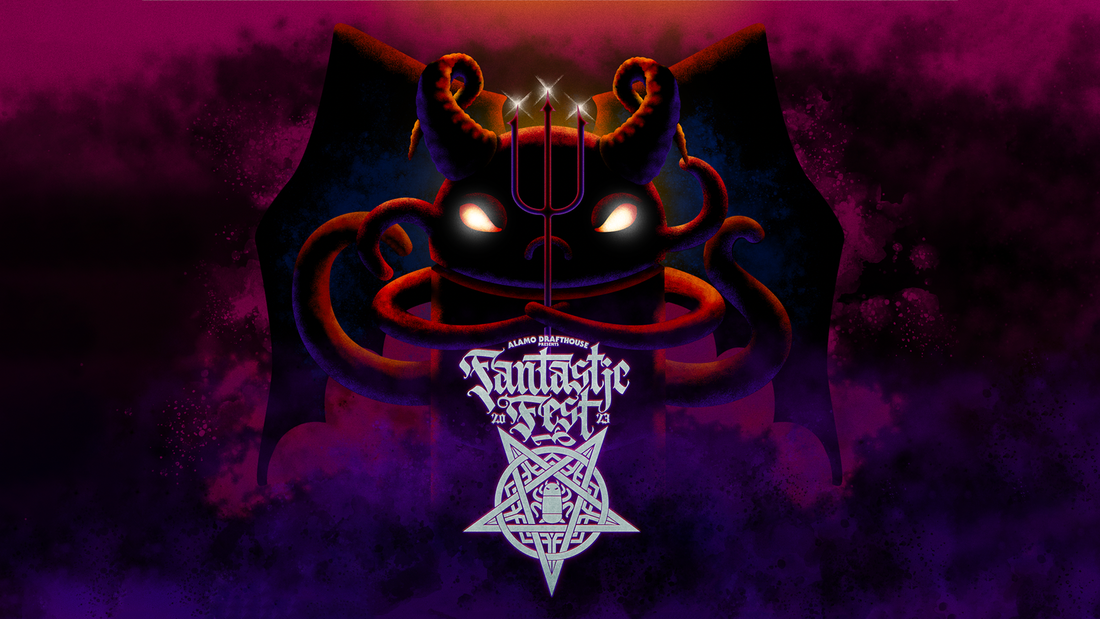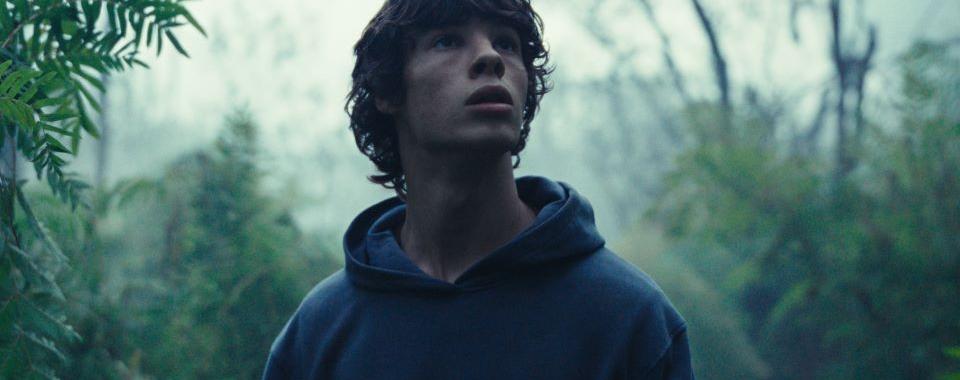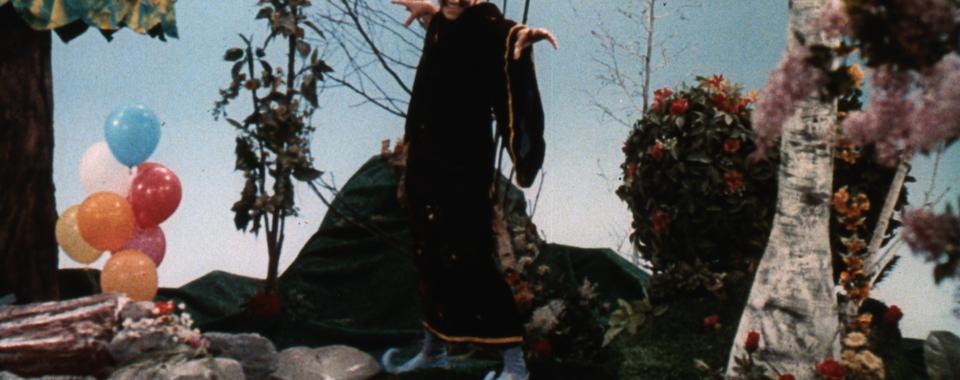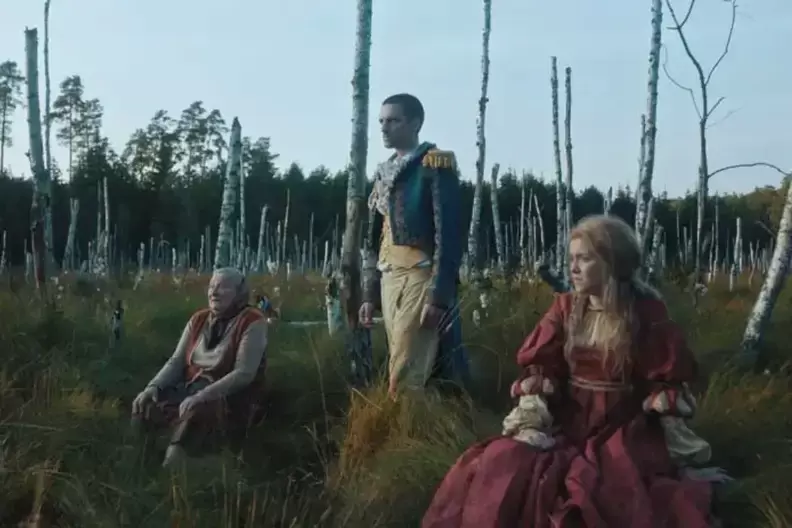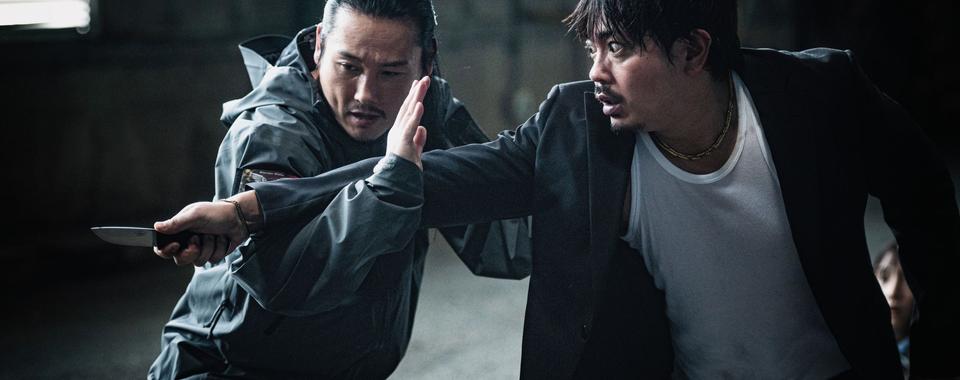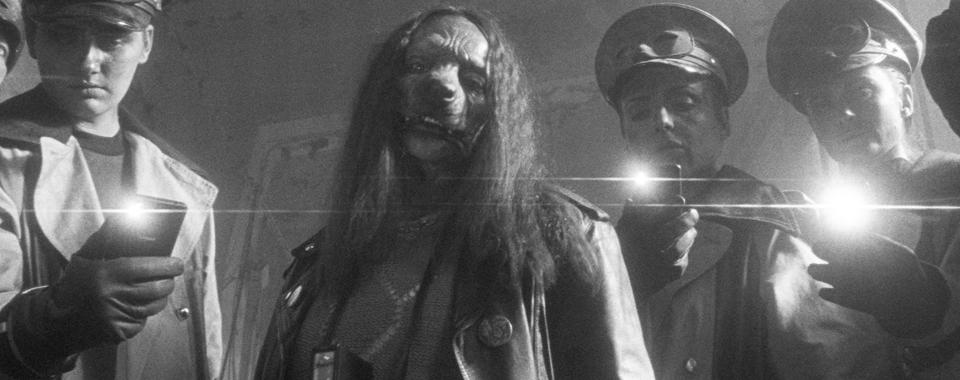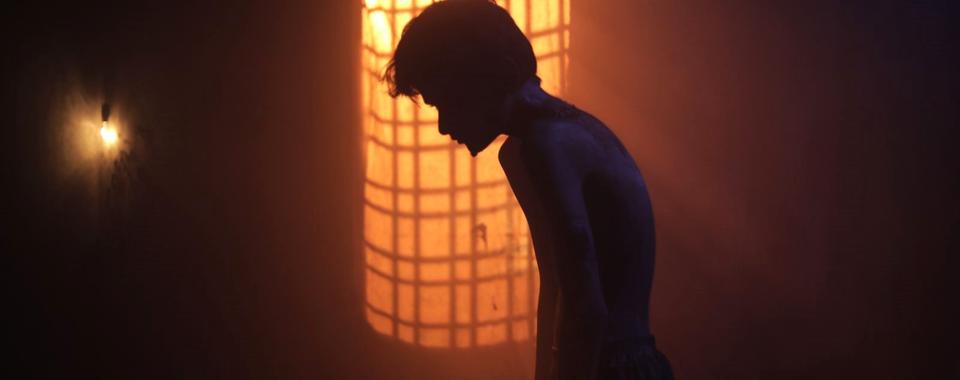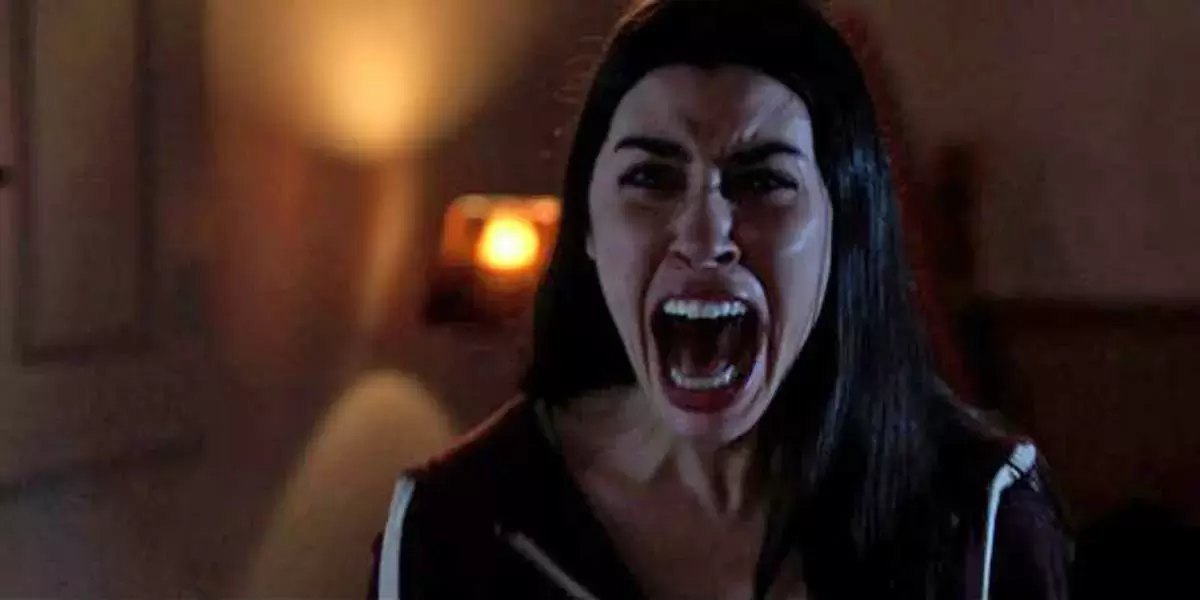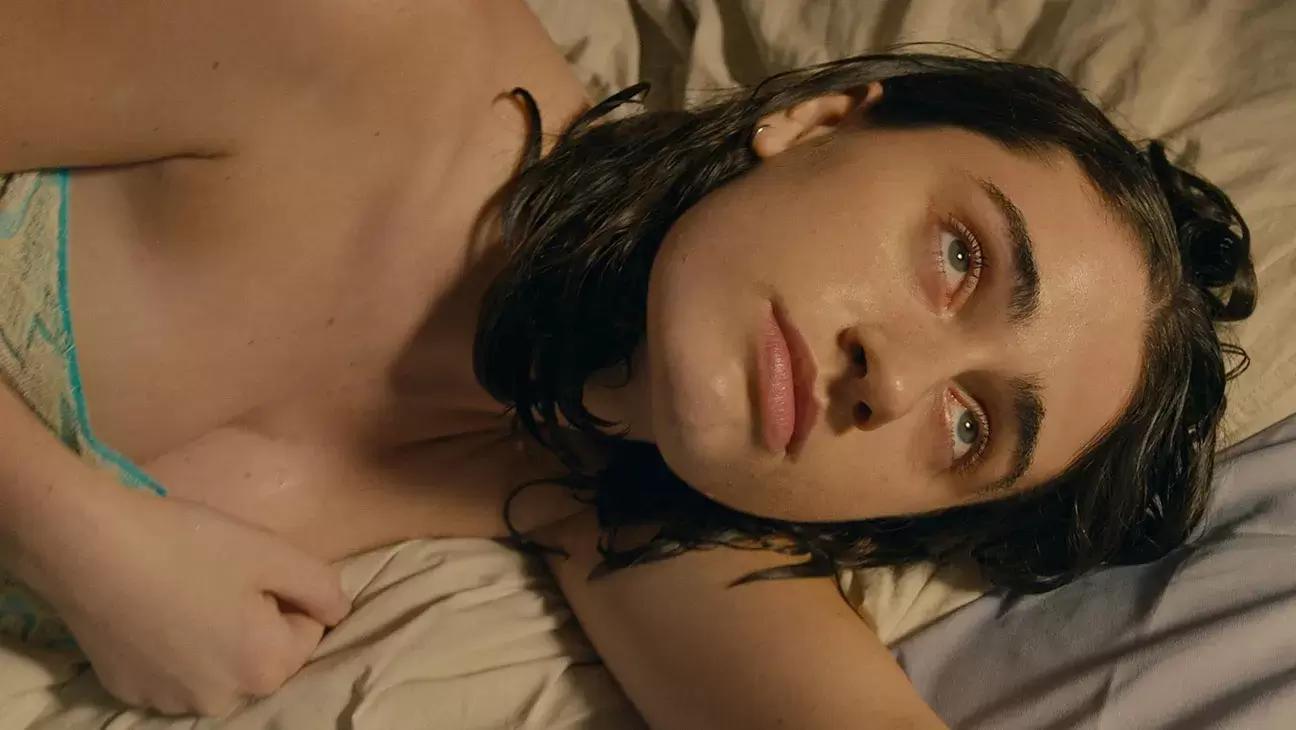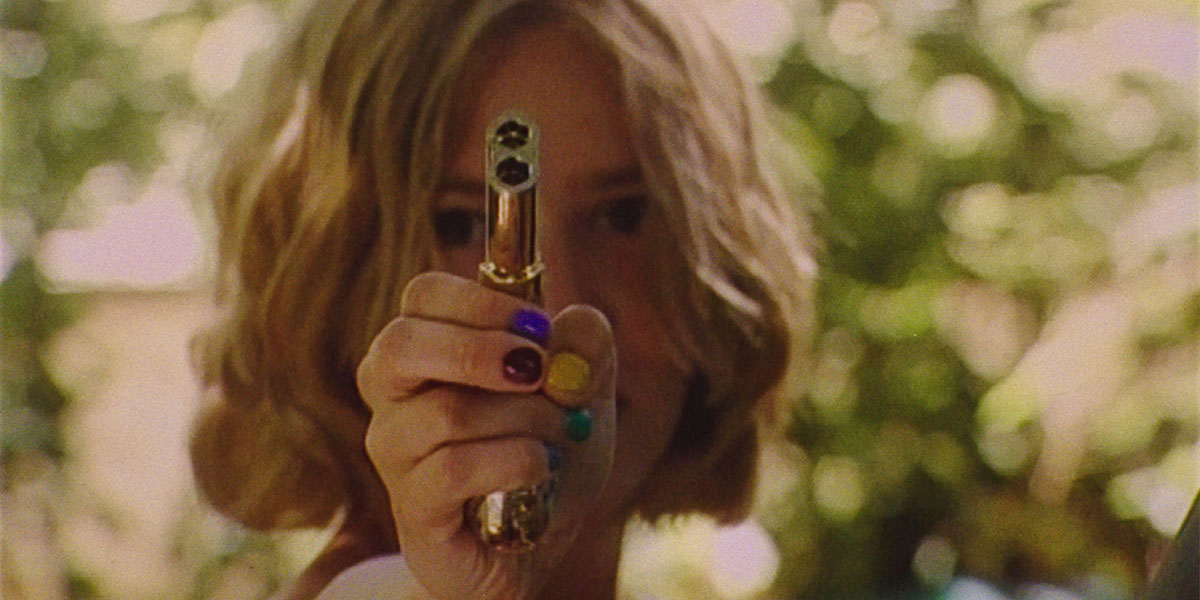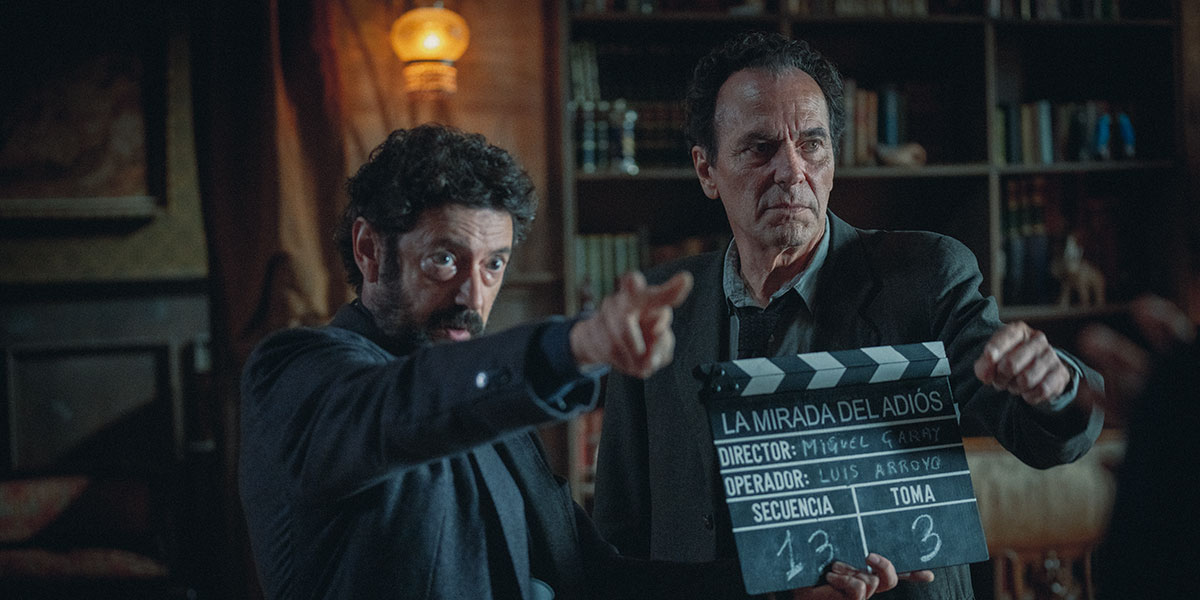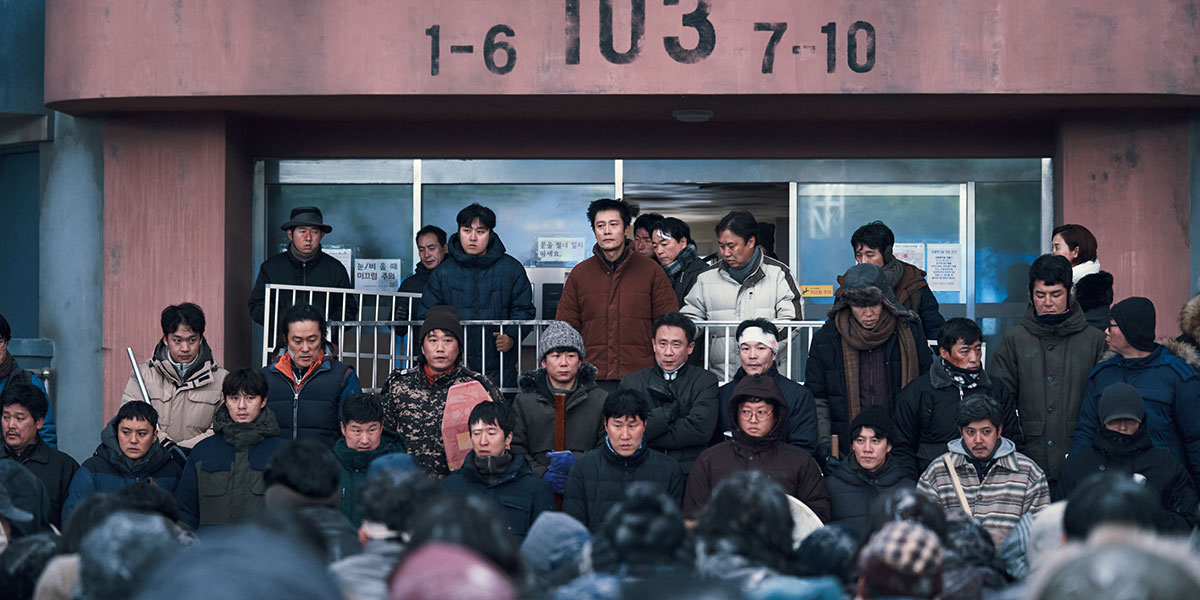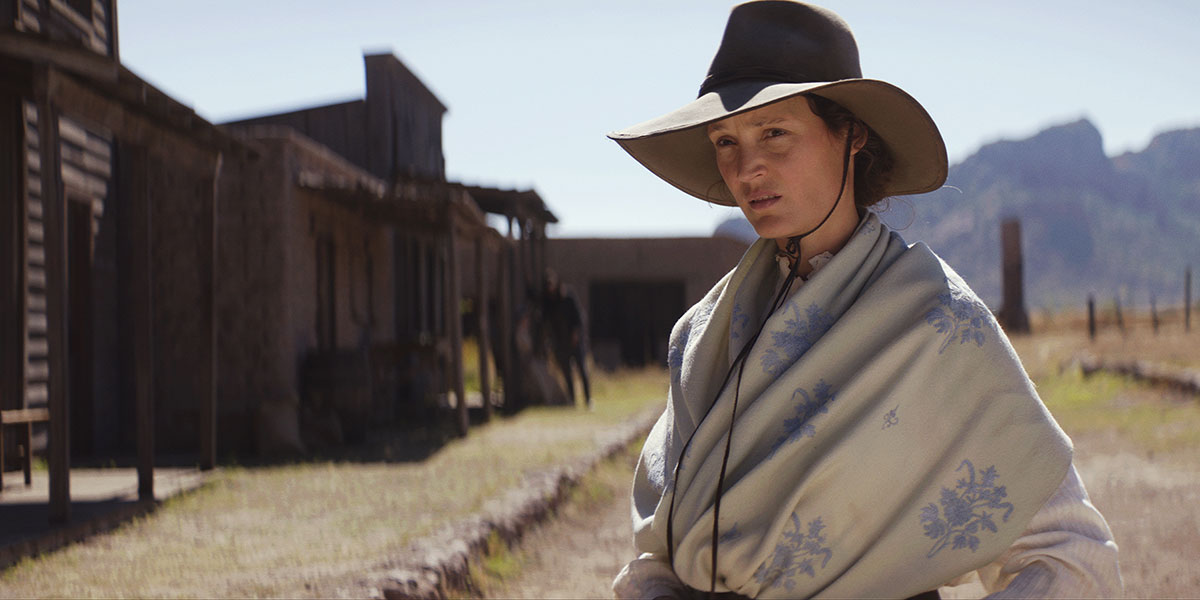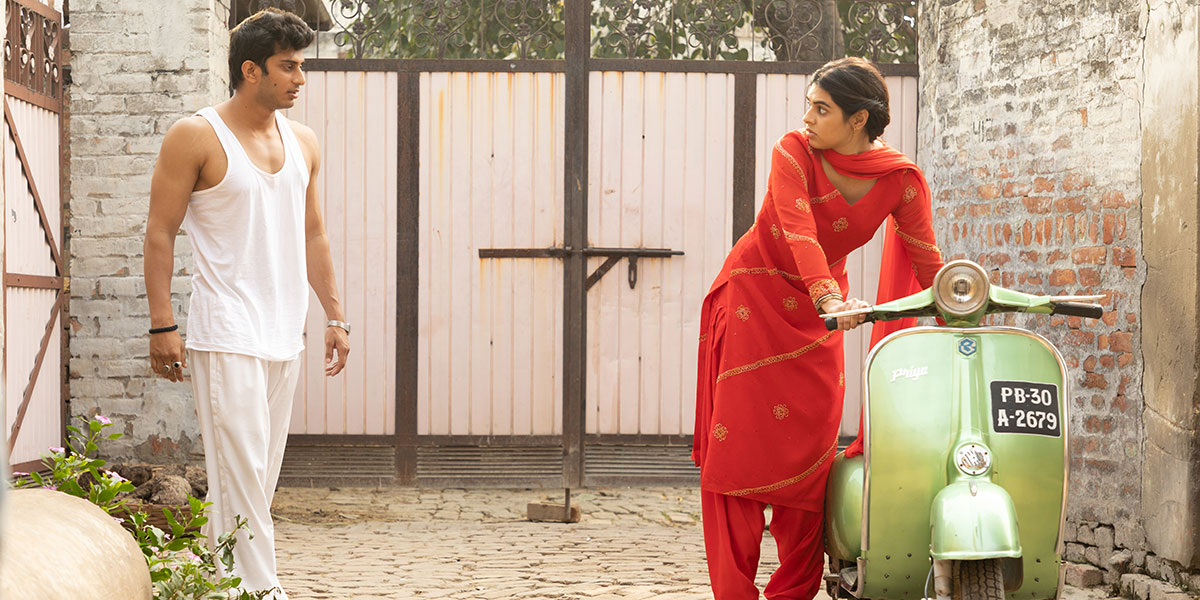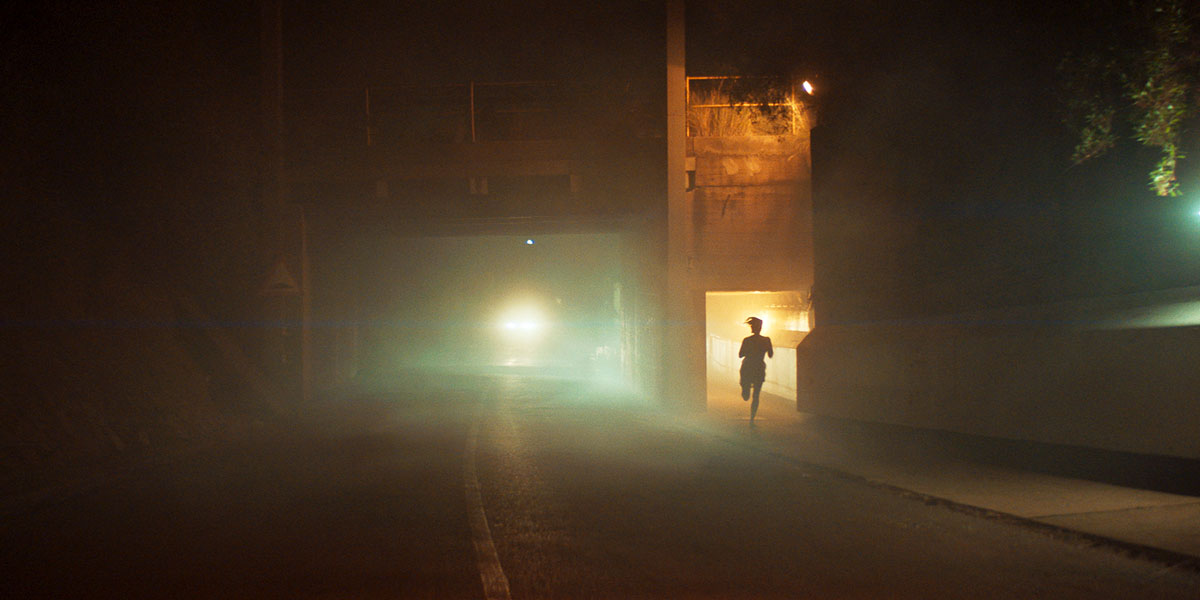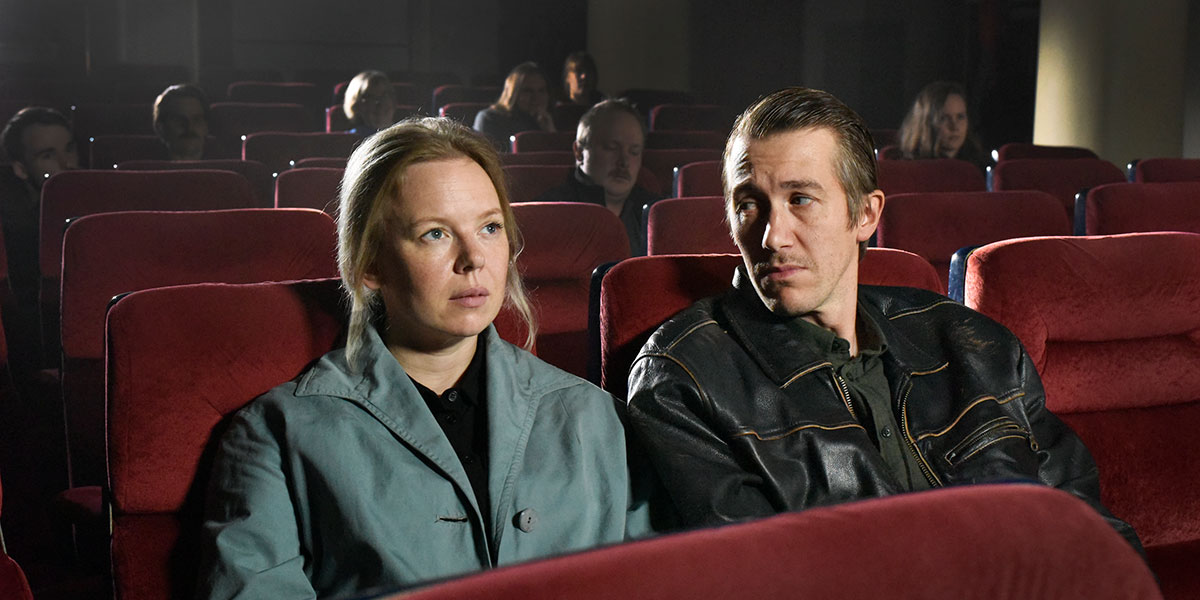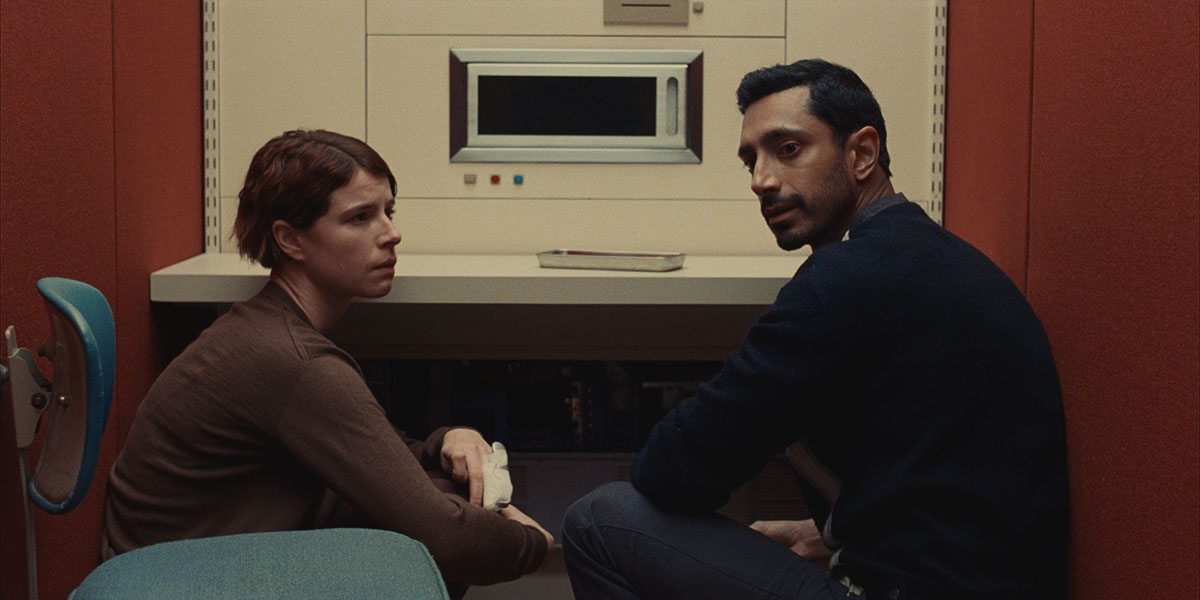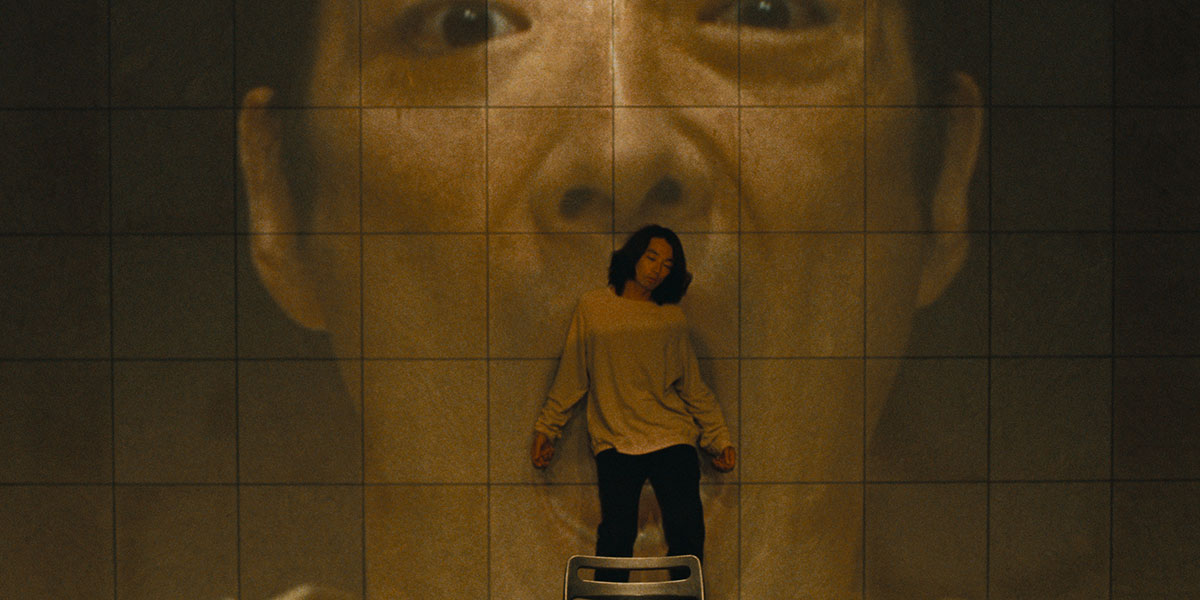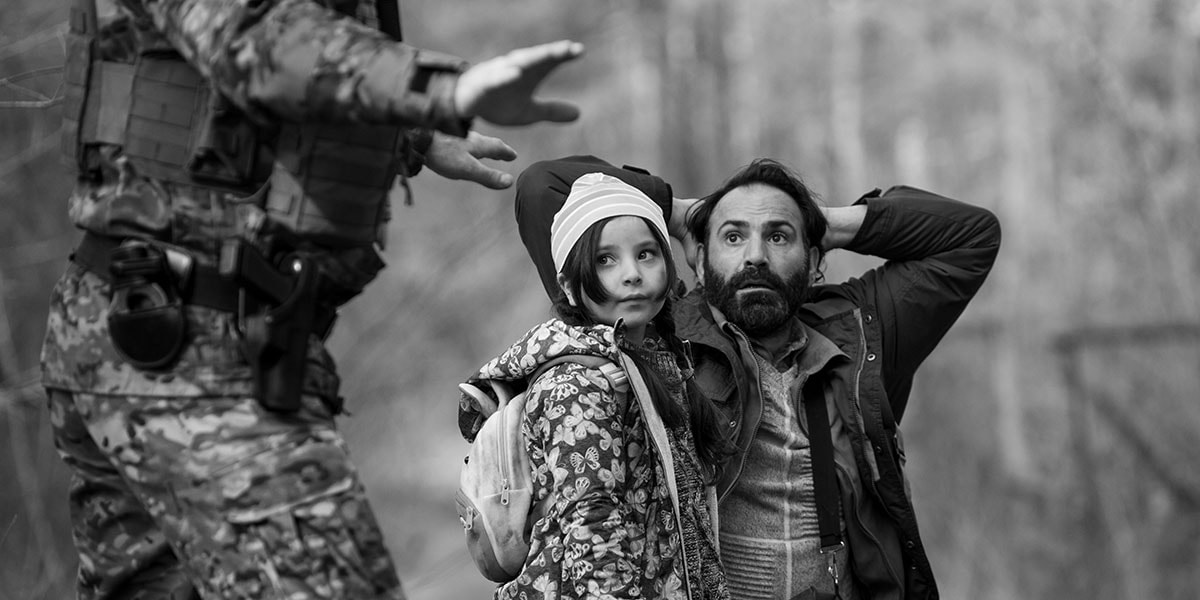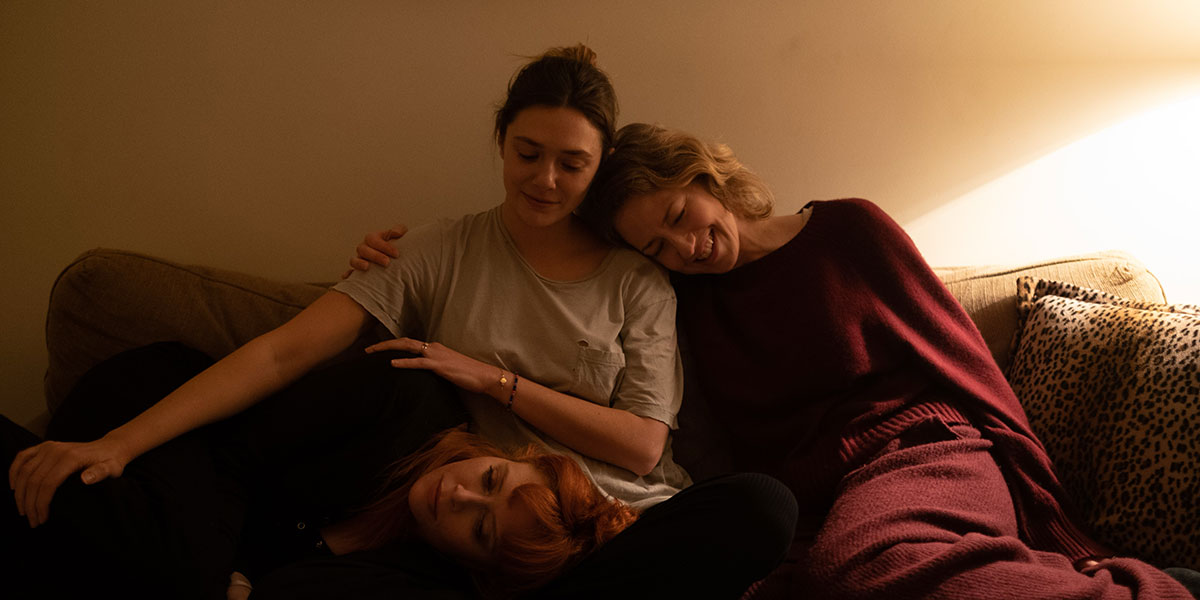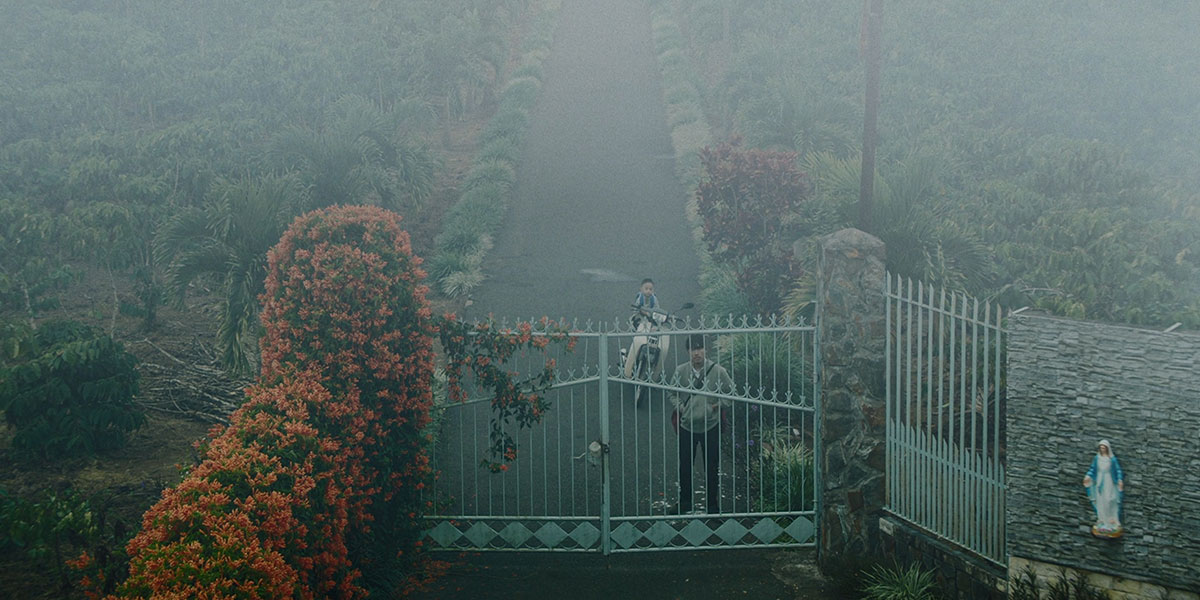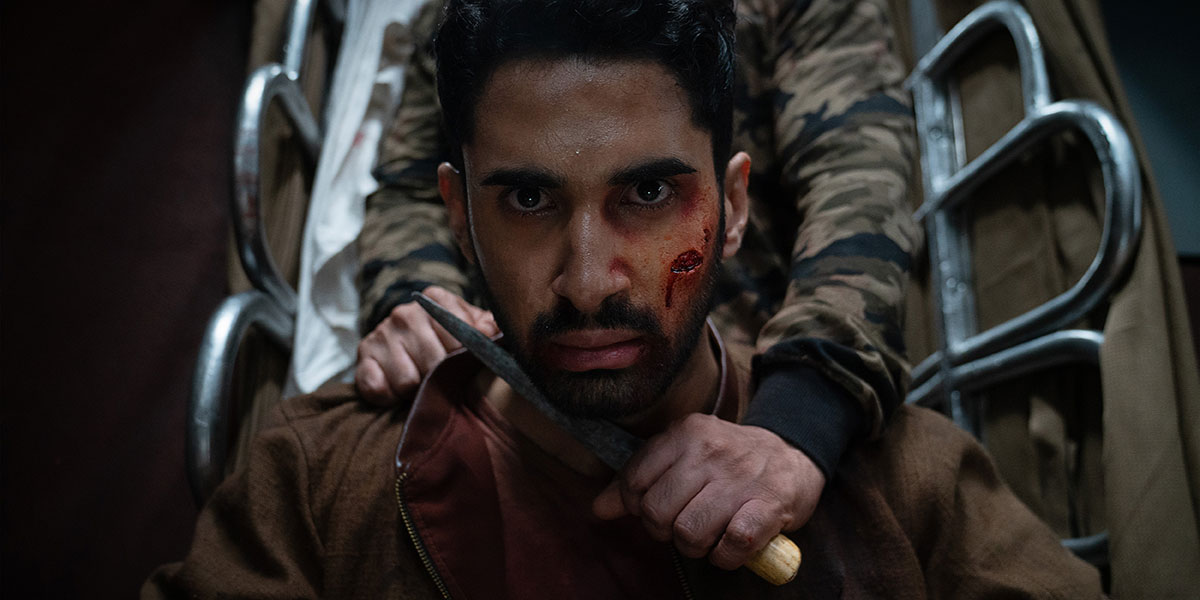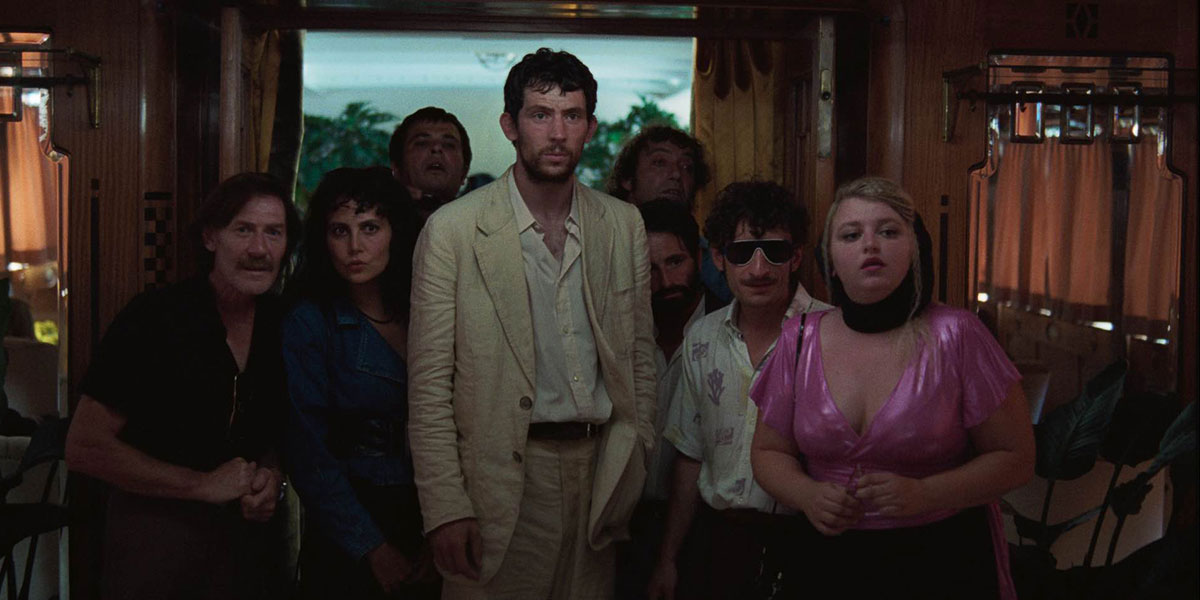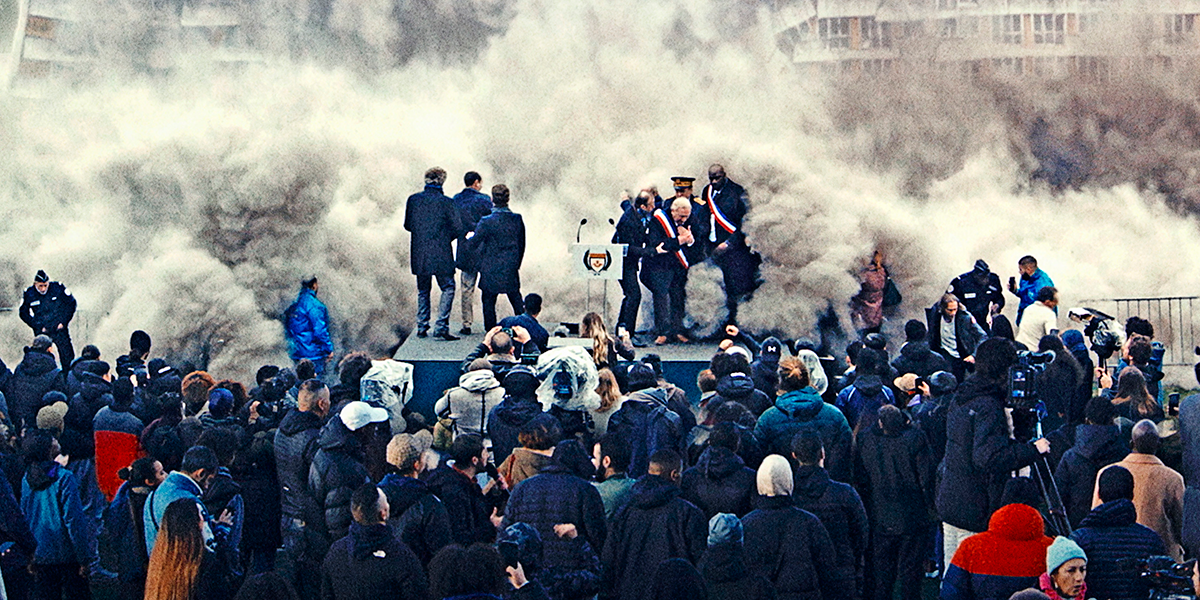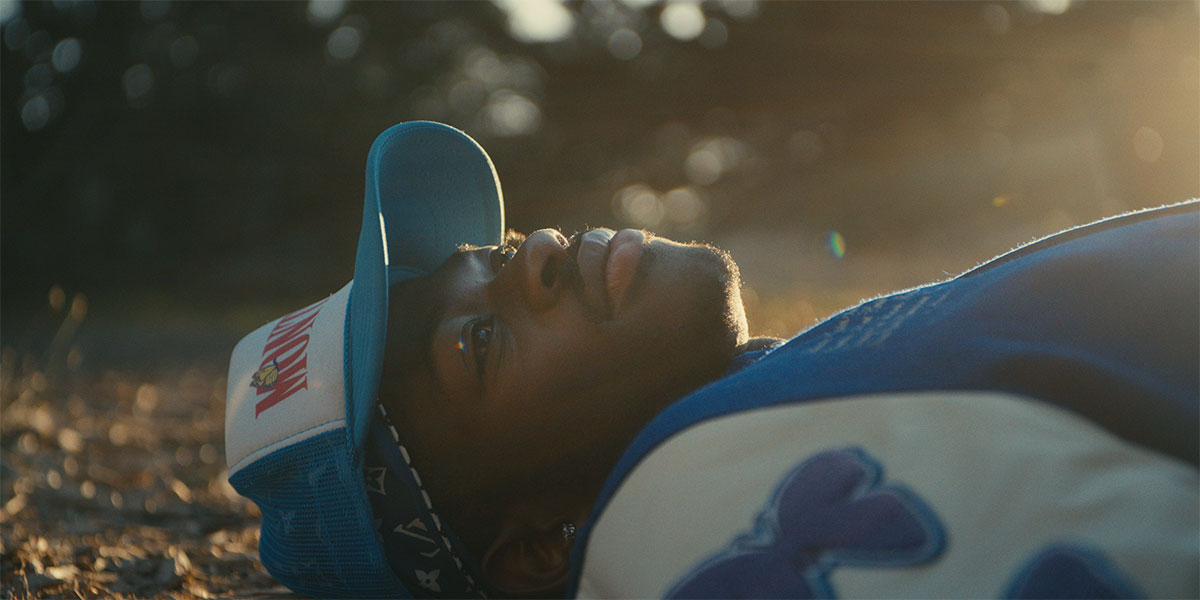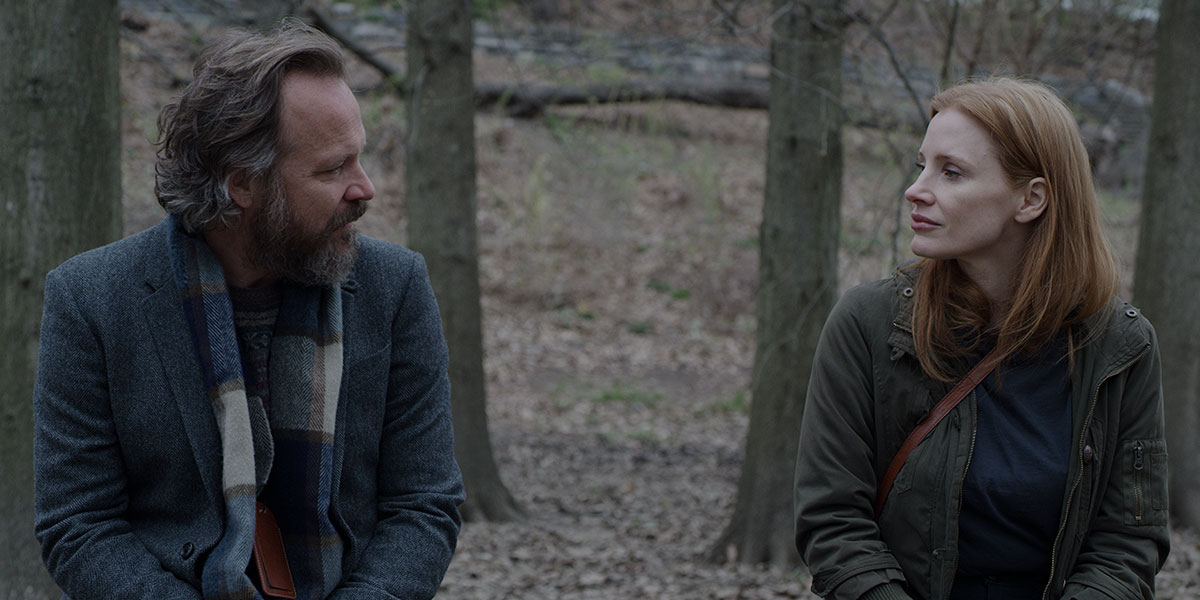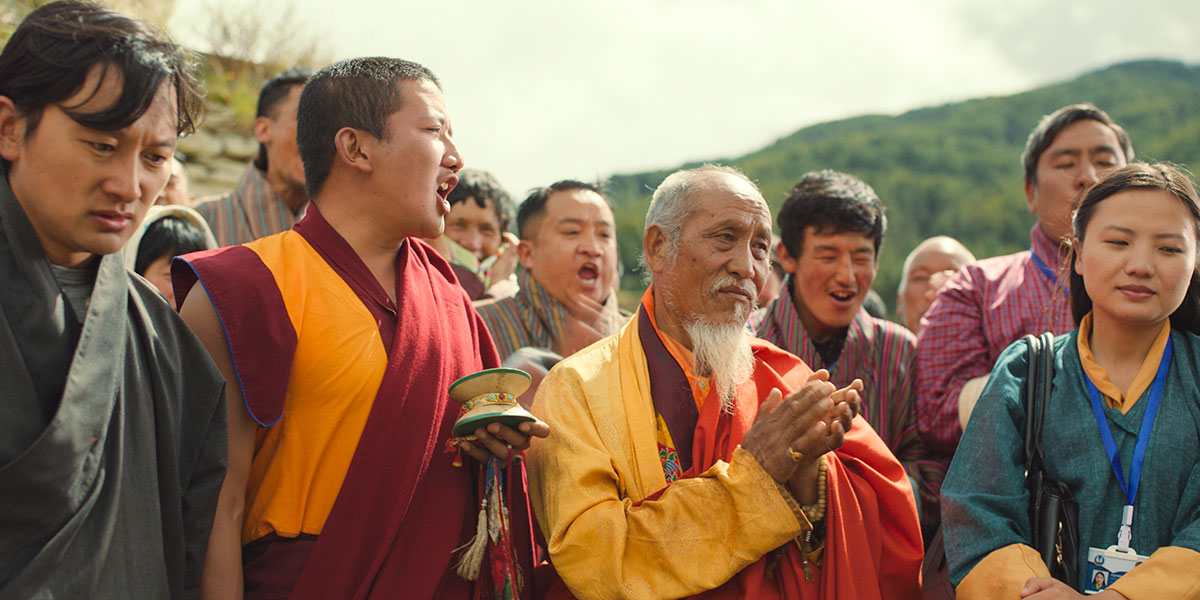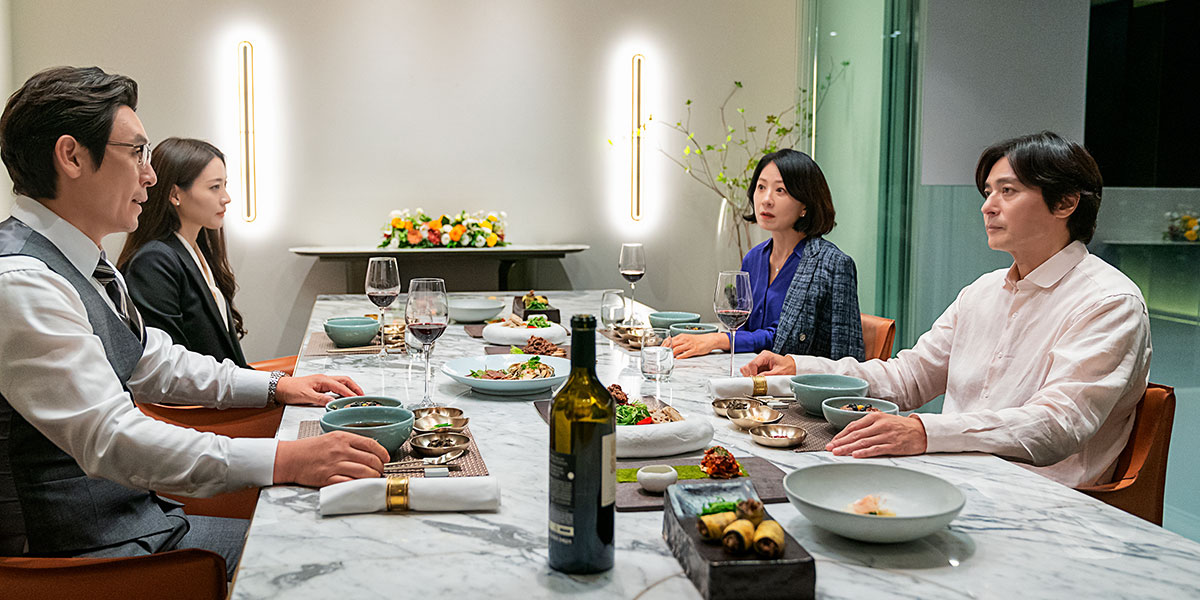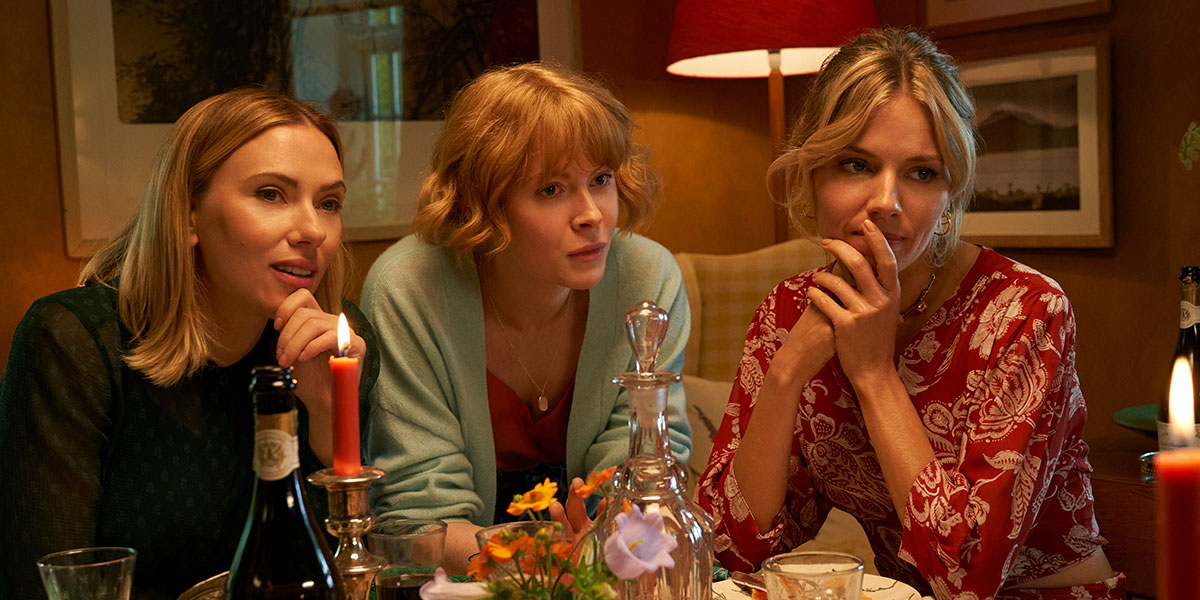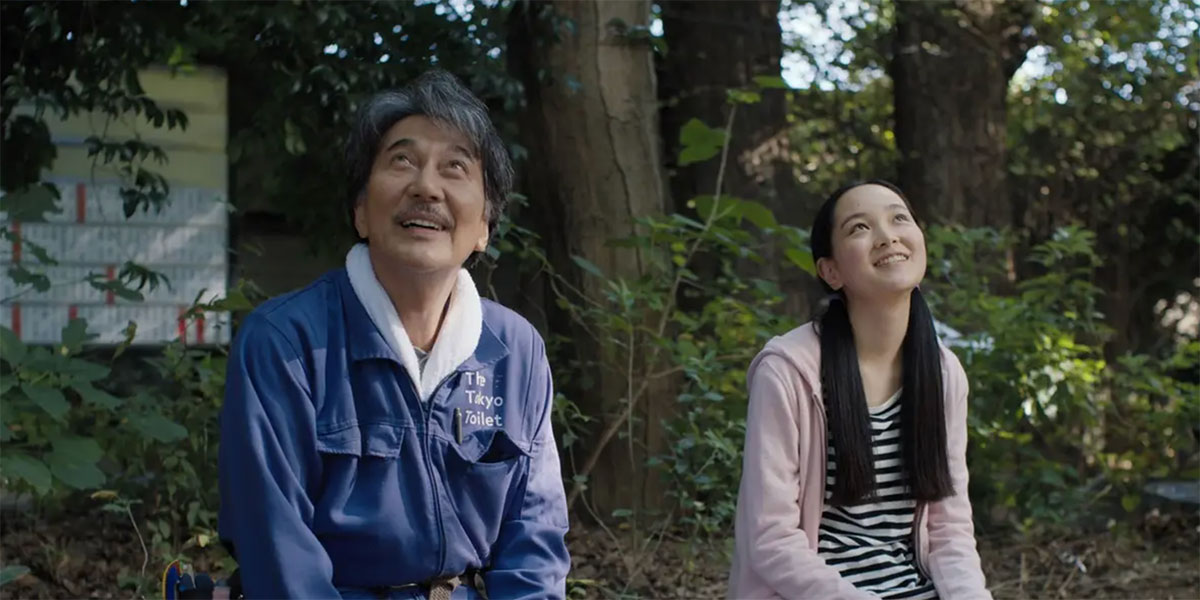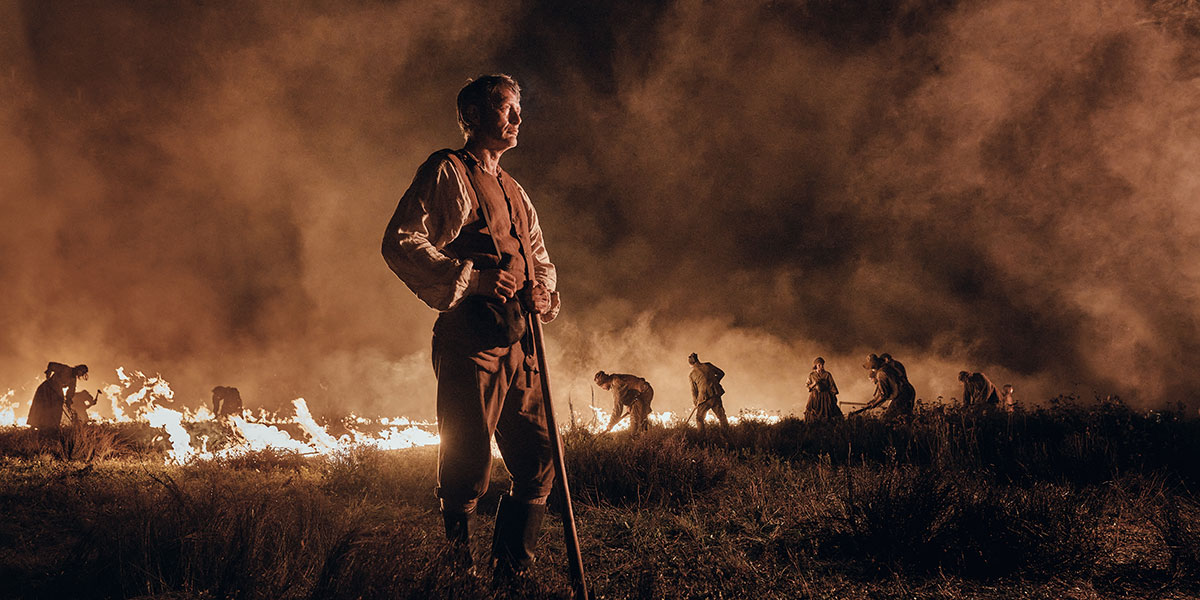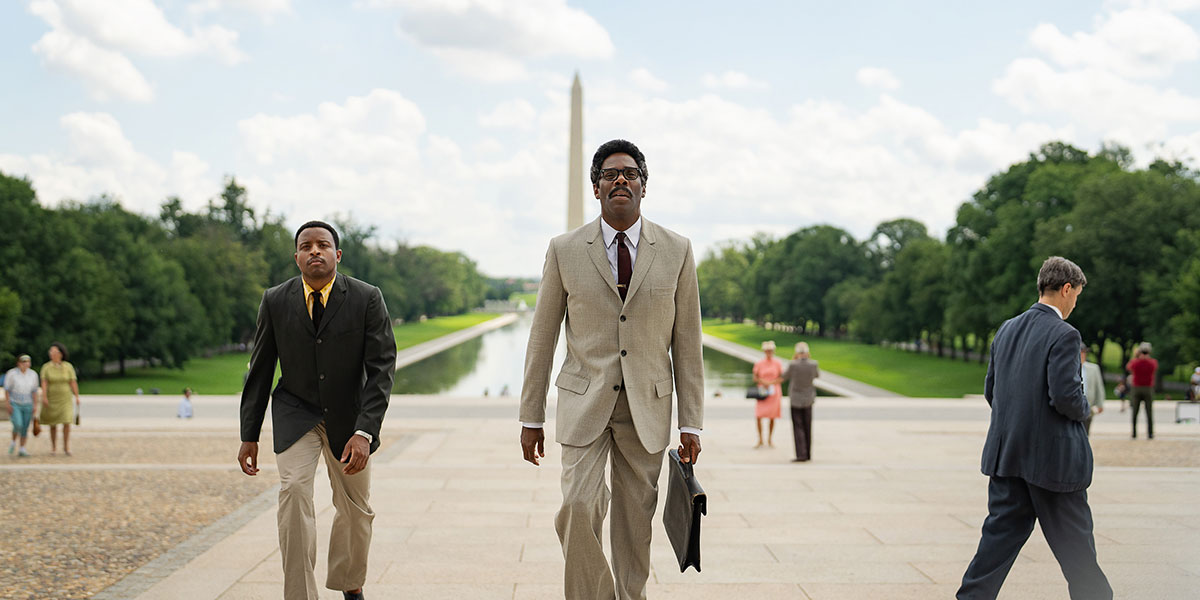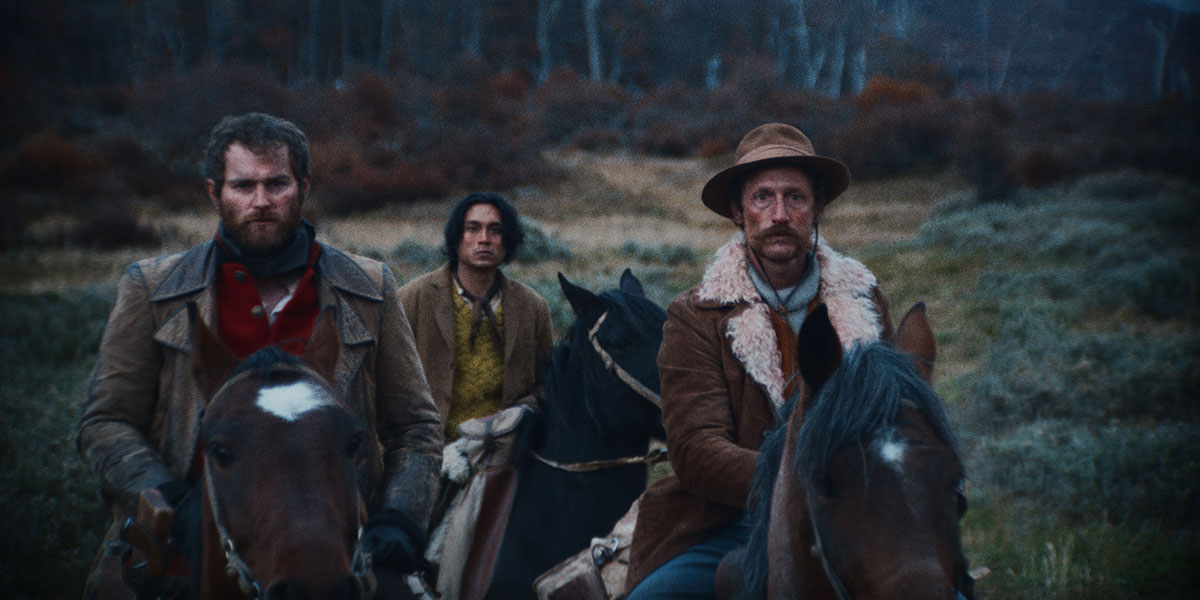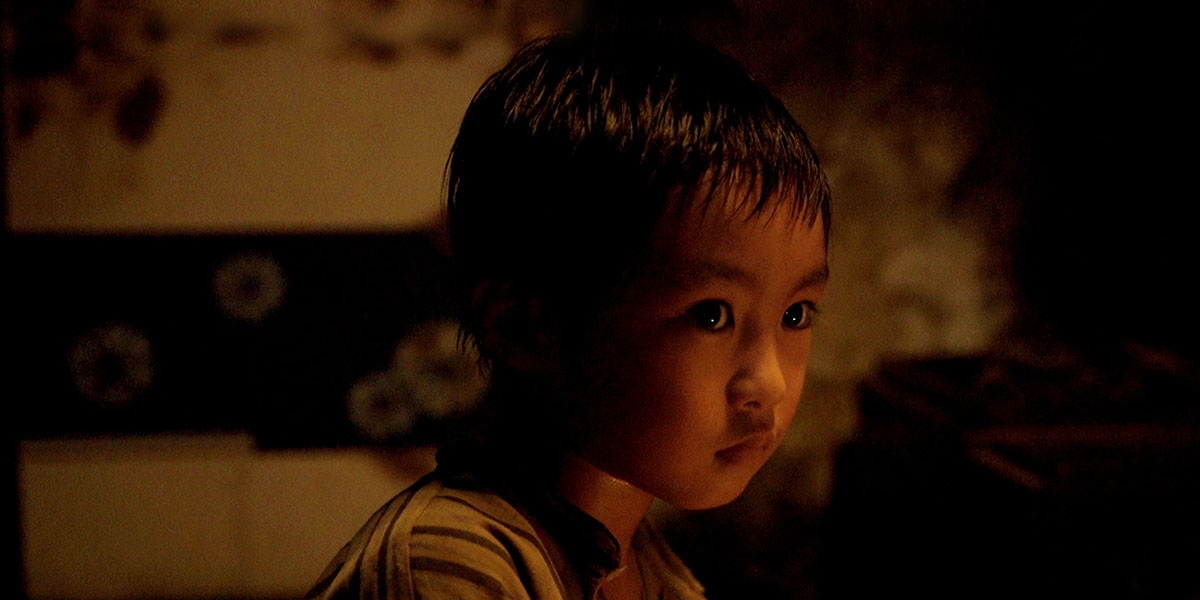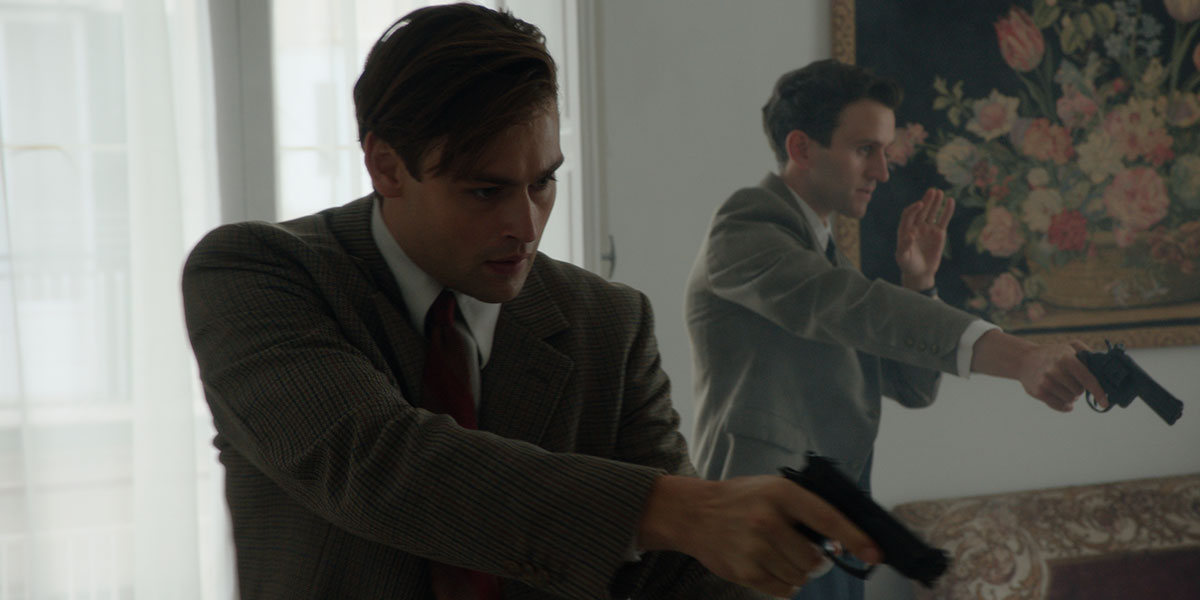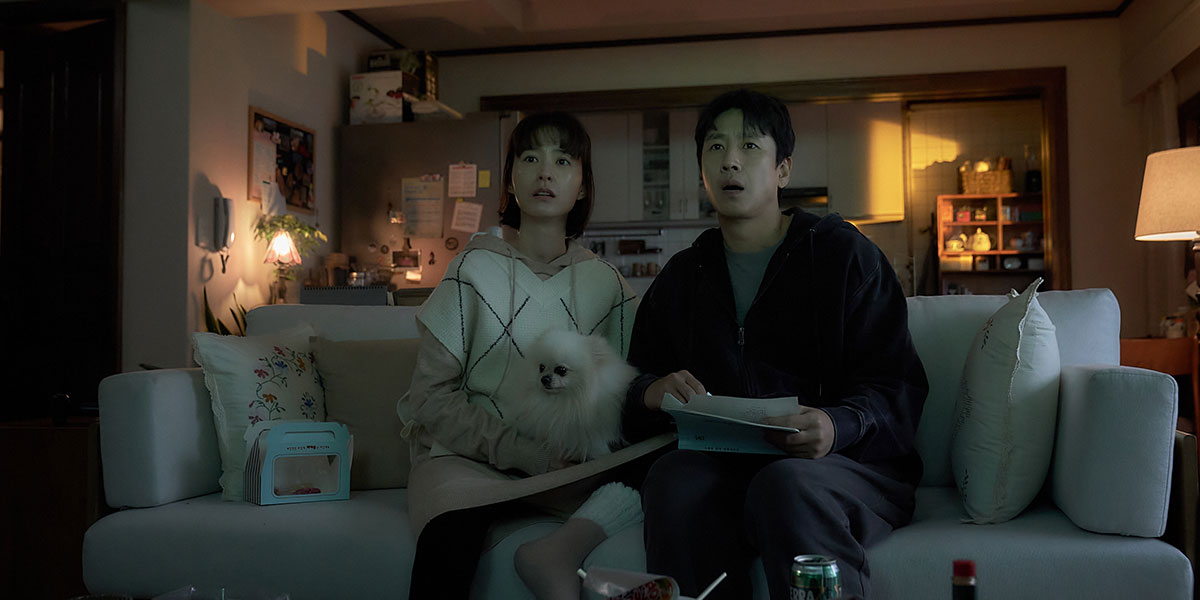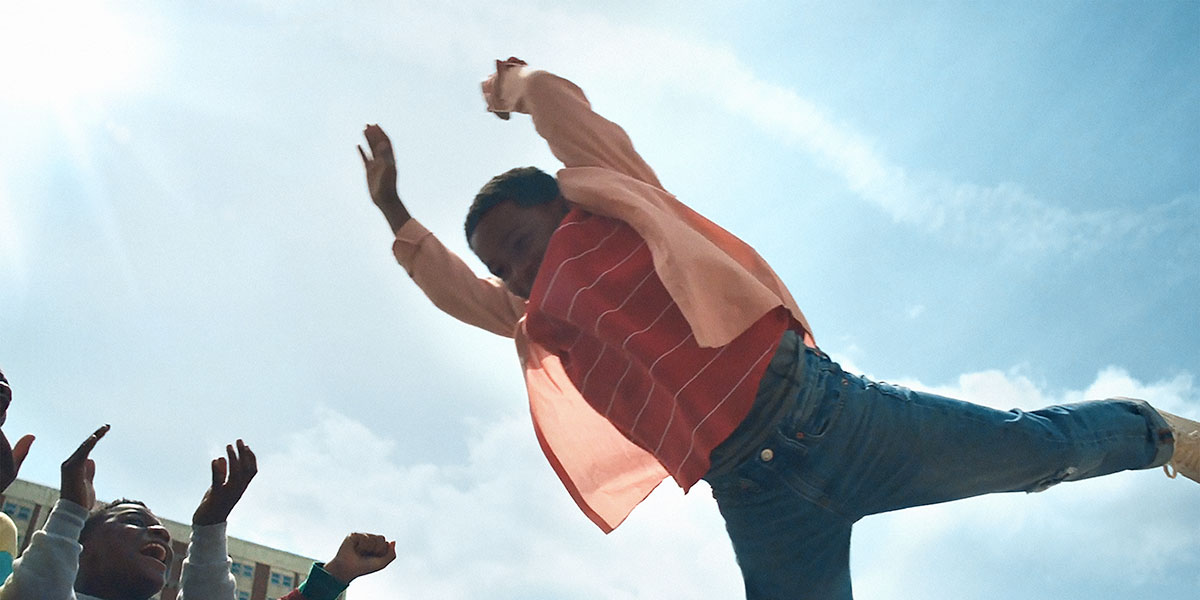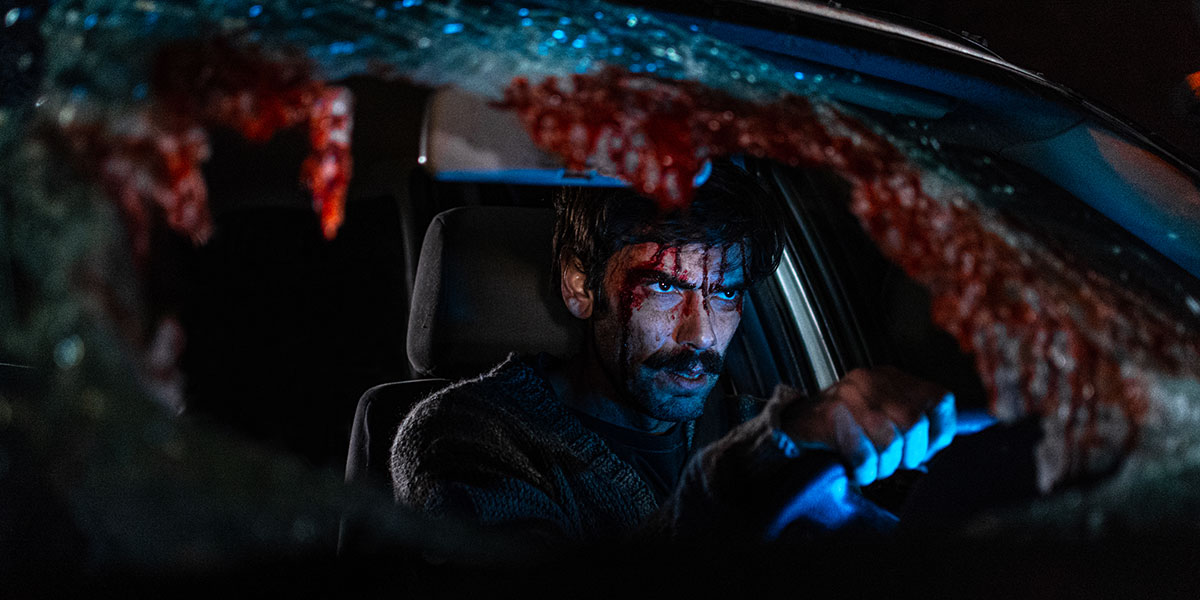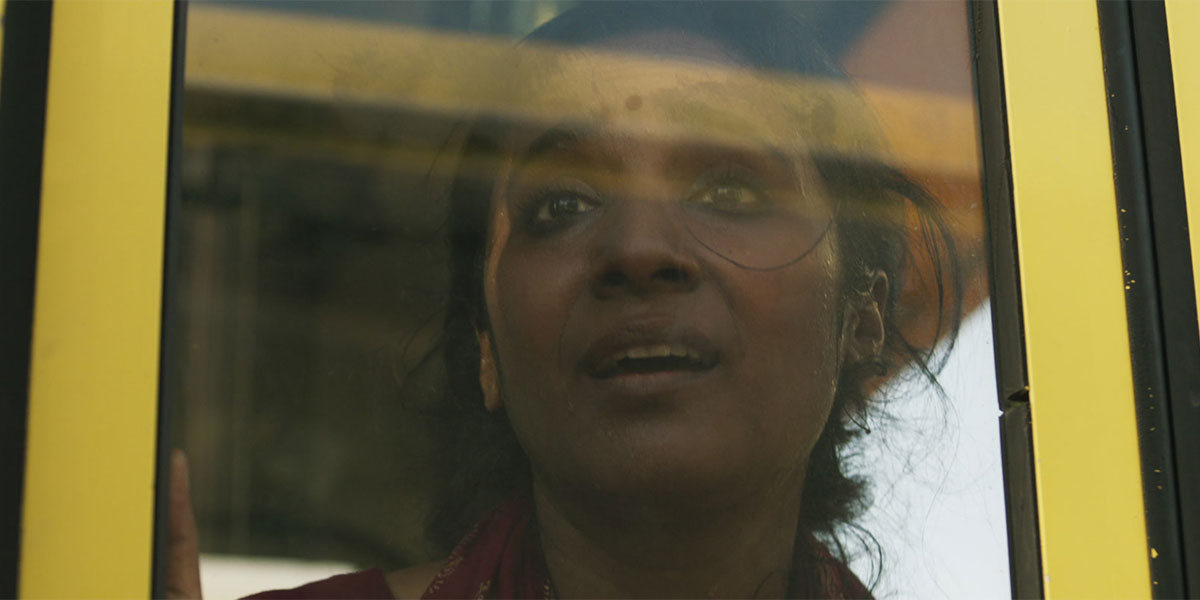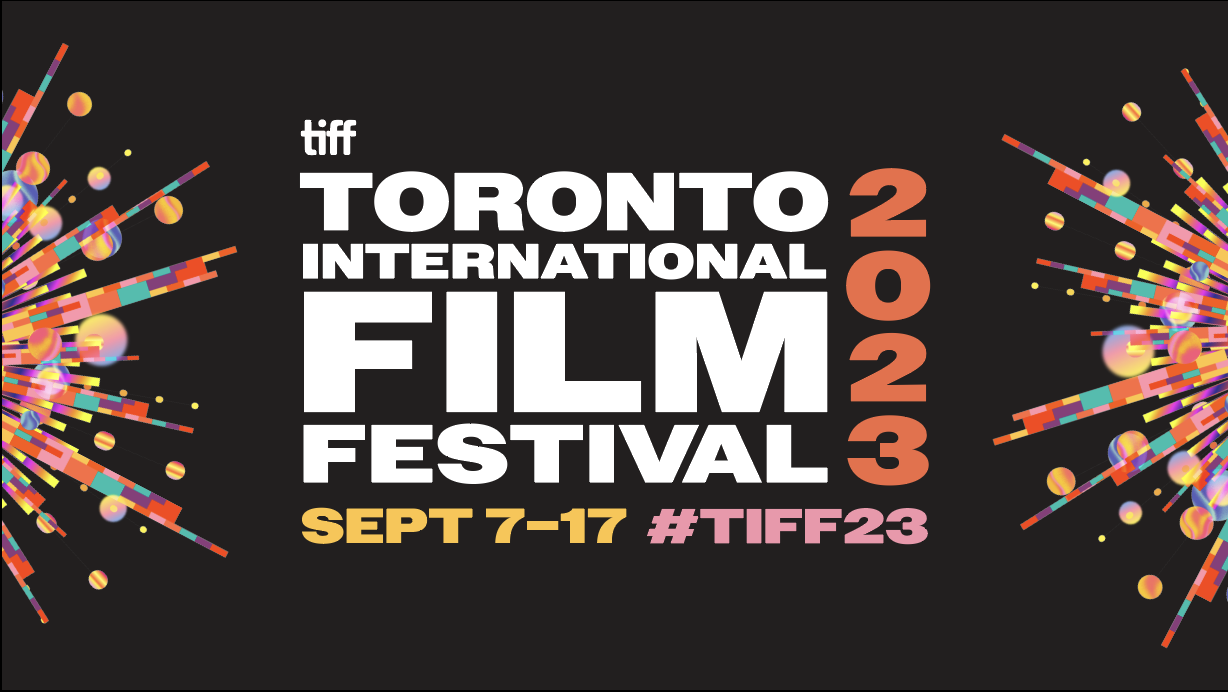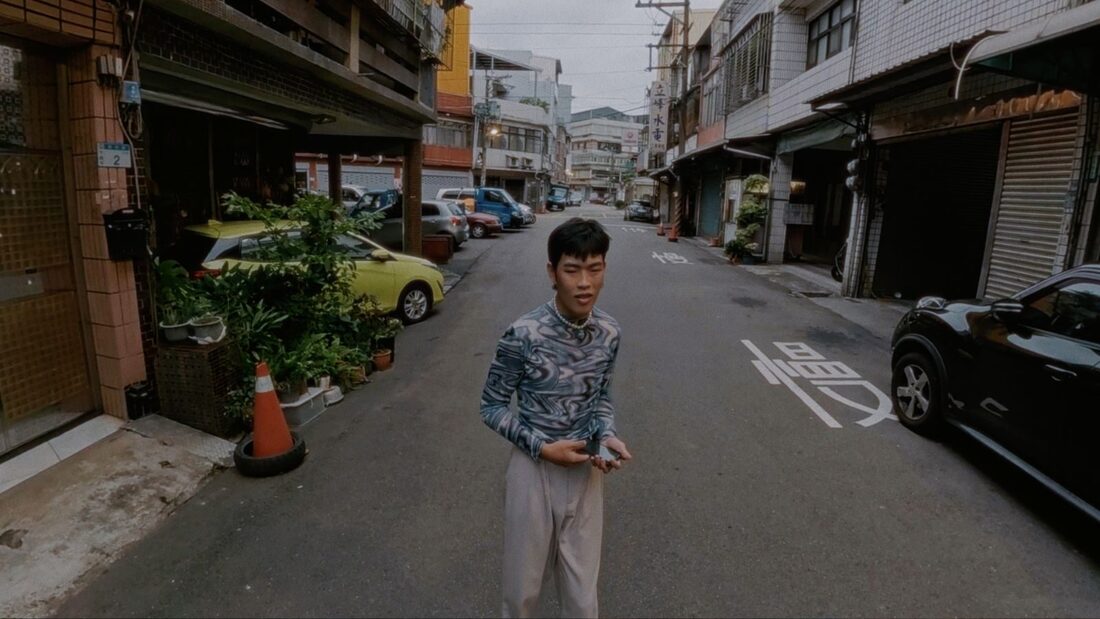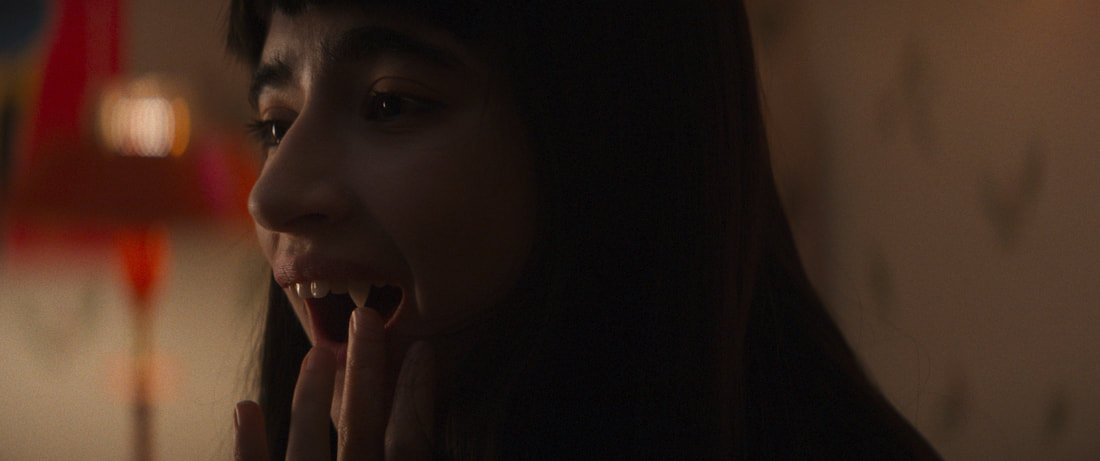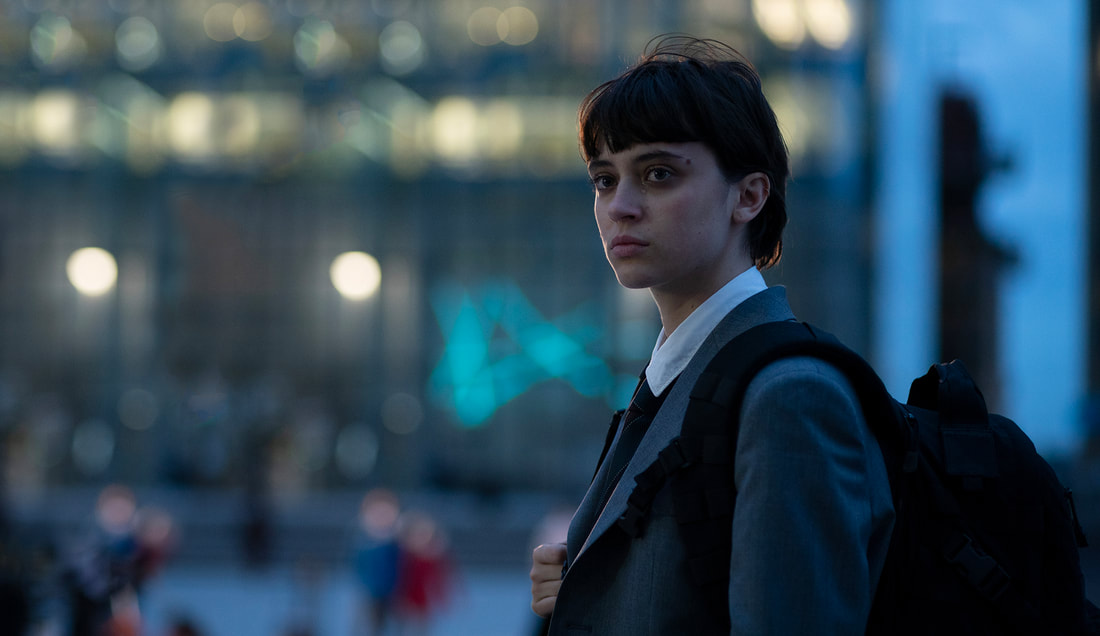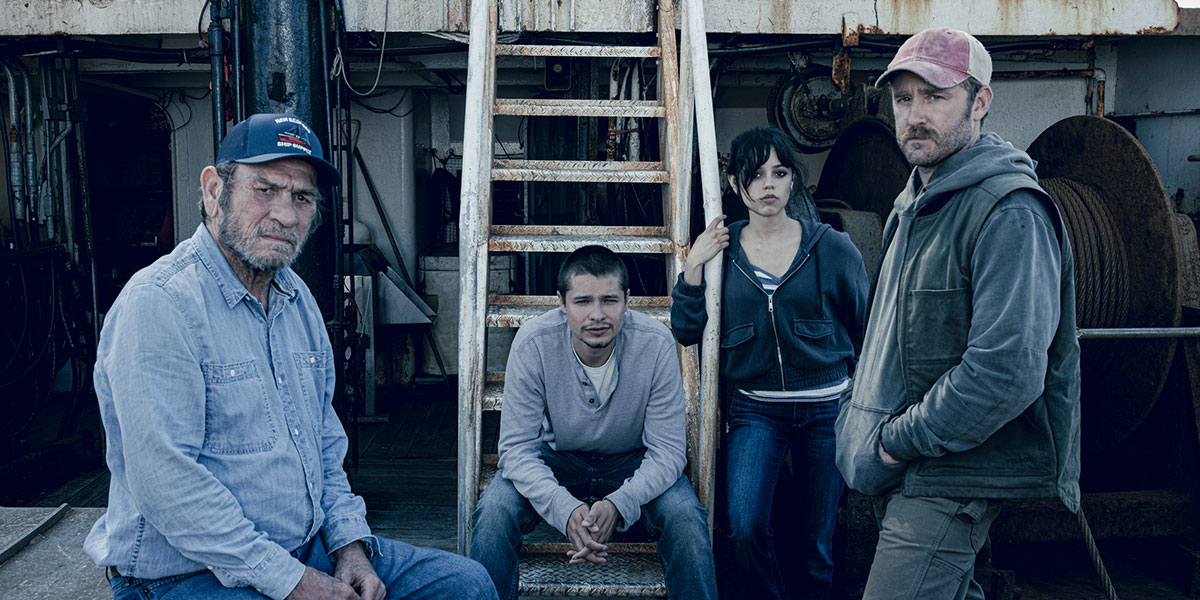|
By Sean Boelman, Daniel Lima, and Erin M. Brady
Fantastic Fest, occurring in Austin, Texas each September, is known as one of the most reputable genre festivals in the world, bringing together cinephiles from around the world to celebrate the latest in weird and macabre cinema.
We at disappointment media were excited to again cover the festival remotely. Here are some of our brief thoughts on some of the films that played at this year's festival: The Animal Kingdom
Review by Sean Boelman
That the fantasy film The Animal Kingdom was even considered for the short list for France's submission for the Best International Film Oscar in the same breath as such movies as Anatomy of a Fall and eventual selection The Taste of Things is frankly baffling — especially when you realize it's not great. Although Thomas Cailley's film has plenty of interesting ideas, its allegories (yes, plural) are muddled down by one another, and the CGI is lackluster, resulting in an experience that is frequently frustrating rather than provocative. The movie also wastes its cast, including the talented Romain Duris and Adèle Exarchopolous — yet another example of this disappoiting film not living up to its potential.
The Coffee Table
Review by Daniel Lima
Where does a story go when it begins with its most shocking reveal? In the case of The Coffee Table, nowhere. A married couple purchases a grotesque coffee table, only to lead to disaster. The film immediately plays its only card, and all it has left to do is remind the audience of the card it played until the credits roll. As shocking as that moment is, it hangs over the rest of the movie, stymieing any attempt to deepen the characters or get the audience invested in what follows. In spite of that, the ensemble is impressive, particularly Estefanía de los Santos. A shame to see them go to waste.
The Cult of AGFA Trailer Show
Review by Erin M. Brady
If you've ever wanted that warm feeling of watching previews to last 80 minutes, then The Cult of AGFA Trailer Show is exactly the movie you need. The editing done for each real-life trailer and theatrical bumper is minimal, yet impactful in conveying the breadth of cult cinema — classics like The Doom Generation and forgotten exploitation fare such as The Other Side of Madness get their equal spotlight. It may not be the most exciting film at Fantastic Fest, but it does go to show how important the genre film, in all its various forms, can be in these times of studio greed and blockbuster fatigue.
Mushrooms
Review by Daniel Lima
An old woman foraging through a Polish forest happens upon a young couple, dressed in strange garb, who claim to be lost. The woman doesn’t seem to trust them, and vice versa. For the next hour it’s left to the audience to puzzle out what exactly either party wants from the other. The mystery of Mushrooms is fun to work out at first, in large part because of the trio of solid performances. However, once it becomes clear the film will merely idle forward until the final reveal, it becomes tedious. That ultimate reveal is either a brilliant stroke that meaningfully recontextualizes the entire movie, or heinous and exploitative. At the moment, I lean towards the latter.
Kill Dolly Kill
Review by Erin M. Brady
It's difficult to objectively review any Troma film in the traditional sense. If you're looking for that to change with Kill Dolly Kill, you're sorely mistaken. The signature Troma low-budget sleaze is still oozing from every scene, and the over-the-top performances and writing sell this. However, there's only so much that can be done to stretch out one joke, and two poorly-choreographed lesbian sex scenes don't mask this issue.
One-Percenter
Review by Daniel Lima
Another collaboration between director Yudai Yamaguchi, star Tak Sakaguchi, and action choreographer Kensuke Sonomura, One-Percenter is both a biting satire and loving ode to action cinema. Sakaguchi plays an action star location scouting for the true-to-life action epic he’s always dreamed of, who stumbles onto an attempted yakuza execution and decides to intercede. What follows is some of the most electrifying fights of the year, with a fluidity, grace, and kineticism that is jaw-dropping. Many references are made to both Sakaguchi’s career and the Japanese action film industry, and the philosophical underpinnings of Tak’s own perspective of his craft make the beautifully orchestrated violence all the more powerful.
She Is Conann
Review by Erin M. Brady
Much like experimentalist Bertrand Mandico's previous work, it's difficult to explain the appeal of his latest, She is Conann. A showcase of the hero's journey gone mad, the film outlines the life of a female barbarian who's lived as many lives as she's brutally taken. Unfortunately, in its attempts to juggle various societal woes (fascism, performative femininity, and capitalist-funded art among others), none of them come together to elevate it beyond the admittedly stunning visuals. You admire it and what it sets out to do, rather than actually like it. Maybe that's the point, but it's still disappointing to see such an ambitious film cannibalize itself.
Sri Asih: The Warrior
Review by Daniel Lima
The second film in the Bumilangit Cinematic Universe, an attempt at a superhero franchise out of Indonesia, Sri Asih: The Warrior bodes ill for the future of the series. A generic story about a woman who is a reincarnated goddess fated to save the world, the film suffers from a bloated narrative that refuses any impulse to build its characters or world, beyond merely baiting future installments. The commentary on economic inequality embarrassingly is shallow, and the low-budget Wonder Woman knockoff action is ugly as sin, particularly compared to the solid, grounded fights at the start of the film.
Suburban Tale
Review by Daniel Lima
The directorial debut of Stephen Alexander, Suburban Tale, follows a distressed young woman who is called back home by her estranged family to help care for a demon-possessed boy as the family prepares for a wedding. She slowly begins to exhibit signs of sickness, beginning a surreal, nightmarish descent into her own psyche. The practical effects work is commendable, and star Rashmi Somvanshi gives a dynamic performance, but the film is so coy with who she is that by the time that revelation arrives, it is impossible to connect with her.
You're Not Me
Review by Erin M. Brady
Christmas seems to be a recurring theme during this year's Fantastic Fest, and You're Not Me sets out to showcase the most wonderful time of the year as the worst. Marisa Crespo and Moisés Romera's film is an oftentimes engaging look into the horrors of an unsupportive family. Its lead character is a lesbian who ran away from her wedding to a man three years prior. However, it begins to lose momentum once it moves into a muddied immigration parable, before ultimately crashing in its final moments. It's a shame, too, as its well-done pacing and direction will make you anticipate a payoff that never actually comes.
The 2023 Fantastic Fest ran September 21-28 in Austin, Texas.
0 Comments
By Jonathan Berk The 24th Annual Woodstock Film Festival kicks off on September 27 and runs through October 1. The films will be presented at venues throughout the bucolic Hudson Valley towns of Woodstock, Rosendale, and Saugerties, with some even available online. This year's festival showcases 28 feature narrative films and 26 feature documentaries by distinguished and emerging directors, with 9 World Premieres, 7 U.S. Premieres, 9 East Coast Premieres, and 16 New York Premieres, as well as 107 short live-action films, documentaries, animation, and music videos. There is a vast pool of films to tempt festival-goers looking to catch some films that have played on the festival circuit or find something that could be the next “it” movie. This year’s opening night film is Fair Play, written and directed by Chloe Domont, her first feature film, which debuted at the Sundance Film Festival and was subsequently acquired by Netflix in the festival’s biggest sale. Emily (Phoebe Dynevor) and Luke’s (Alden Ehrenreich) relationship is pushed to the brink when a new promotion at their financial firm causes challenges both in and out of the office. As the power dynamics shift, they’re left to face the price of success and the limits of ambition. Ally Pankiw’s I Used to Be Funny had its world premiere at SXSW and now makes its way to Woodstock. The movie stars the up-and-coming megastar Rachel Sennott (Bottoms, Shiva Baby, Bodies Bodies Bodies) as Sam, a stand-up comedian and former au-pair navigating PTSD. While going through her personal struggle, Brooke (Olga Petsa), the girl she used to nanny, has gone missing. The film uses non-linear storytelling, cutting back and forth from present to past, to build tension and reveal the connection between Sam and Brooke. It’s a tense film with moments of levity all resting on the very capable shoulders of Sennott. It’s definitely not one to miss. Brittany Snow is a familiar face on-screen in movies like Pitch Perfect and Ti West’s X, but for Parachute, she makes her directorial debut. The film also premiered at SXSW and features Courtney Eaton (Yellowjackets) as Riley in an unbelievably brave performance. Riley is just leaving rehab for what she shruggingly tells Ethan (Thomas Mann), a potential new boyfriend, she was in for “eating things… body stuff.” Extremely difficult to watch at times, Parachute’s story, performances, and message of love are undeniable. Snow’s film is both harrowing and endearing, and should be added to your schedule.
For those who are fans of animation, Bill Plympton’s new film Slide may be right up your alley. Though, Plympton’s style is far from family friendly, so go into this film with that in mind. A Western in many ways, with unique art styling the characters, Slide follows a mythical cowboy who arrives in a corrupt logging town. He falls in love with a prostitute who is fighting back against the mayor and his twin brother, whose selfishness seems to be sending the town into disarray to lure in Hollywood movie studios. The film is not quite finished, but it is a quirky experience with a style that shows great promise. Overall, this year's WFF looks to be another great one. With tons of options for festival-goers to choose from, if you’re in the area, there is no reason not to catch one, two, or even ten. Those interested in the festival, but unable to travel, will have a limited selection of films at the festival available online. At worst, those who can’t attend the festival can keep up with the buzz about the films and add them to their watch list. The 2023 Woodstock Film Festival runs online and virtually from September 27-October 1. By Sean Boelman The 2023 Toronto International Film Festival might have been on a smaller scale than usual due to the SAG-AFTRA and WGA strikes preventing much of the big-name talent from congregating on Festival Street as they have in the past. Still, the film festival featured plenty of great international and independent cinema to check out, and we, at disappointment media, got to see over 80 movies between our time on the ground and through links before and after the fest. Here are some of our thoughts on many of the films we did not give a full review to: About Dry GrassesNuri Belge Ceylan’s About Dry Grasses debuted earlier this year at the Cannes Film Festival to great acclaim. While there is a great movie in there in the film’s 3+ hour runtime, it all too often feels like Ceylan is throwing everything to the wall to see what sticks, causing the film to feel somewhat overwhelming. The second act of the film is fantastic, but the first act is a bit too slow in its set-up, and the final third is where the film goes really ambitious only to swing and miss. You have to admire what Ceylan is trying to do here, but the final result is more frustrating than satisfying. Arthur&DianaSara Summa’s film Arthur&Diana is reminiscent of the post-French New Wave work of filmmakers like Serge Gainsbourg. That’s to say it’s entirely pleasant, but there’s not a whole lot of substance to the film. Summa stars alongside her real-life brother Robin Summa in an auto-fictional tale about a duo of siblings who take a road trip from Berlin to Paris. The characters are compelling enough thanks to the film’s exploration of the family dynamic, but where Arthur&Diana shines is its visuals, which lend the film some absolutely exquisite vibes. Close Your EyesVictor Erice’s first film in 30 years, Close Your Eyes, is the type of nuanced and layered film that demands multiple watches to fully understand it. Perhaps a tad meandering, Erice’s dense film following a filmmaker who investigates the disappearance of his friend and actor on the set of an unfinished film decades earlier nonetheless thrives on its subtlety and poeticism. The film also features a tremendous lead performance by Manolo Solo. Concrete UtopiaThe South Korean disaster epic Concrete Utopia is like any number of disaster movies you have seen before. Although the film boasts some great CGI and production design, the story lacks the requisite thrills to make the genre work, and the commentary is too familiar to the genre to leave much of an impact. One has to at least admire the film’s massive scale, but the storytelling unfortunately leaves something to be desired. The Dead Don't HurtViggo Mortensen made his directorial debut a few years back with the underwhelming LGBTQ+ drama Falling, but his sophomore effort, The Dead Don’t Hurt, is a massive upgrade. Following two immigrants who form an unexpected love for one another, the film’s script is its weakest part — suffering from an unclear and needlessly convoluted narrative structure that makes the film hard to follow. Still, the visuals of the film are magnificent, as are the performances from Mortensen and Vicky Krieps, allowing the film to hit its intended emotional beats with ease. Dear JassiTarsem Singh is a relatively acclaimed filmmaker among cult film audiences, but his latest film — and his first set in his native India — is much more conventional than his past work. Dear Jassi starts as a relatively harmless romance about a couple in courtship. However, after the first hour, the film turns into straight-up trauma porn, and it’s impossibly miserable to sit through. While many people will undoubtedly sing the praises of the film claiming that it’s “important,” there have been dozens of movies to explore this theme much more effectively. Death of a WhistleblowerThe South African film Death of a Whistleblower has all the makings of a great political thriller. It has a timely story about the political assassination of journalists in authoritarian countries, and the direction is entirely competent, but the formulaic nature of the script threatens to undermine any resonance it could have had. Everything feels so exaggerated and melodramatic that it is difficult to give any credence to the very real problem the film hopes to call attention to. Fallen LeavesIn a festival with lots of long, heady films, it was nice to see something as quaint and short as Fallen Leaves. This Polish romance by Aki Kaurismäki doesn’t have a lot going on beneath the surface, but sometimes all a film needs to work is a satisfying story and strong execution. The film’s highlights are its two leads, Alma Pöysti and Jussi Vatanen, who both give incredibly charming performances with some of the best chemistry you will see all year. FinestkindOscar-winner Brian Helgeland’s latest film, the maritime drama Finestkind, is hardly up to the caliber of the filmmaker’s greatest work (L.A. Confidential, Mystic River). However, it is a mostly entertaining and very old-school film, the likes of which we don’t see often anymore. Ben Foster again proves that he is one of the most underrated actors working in Hollywood today because he essentially carries Finestkind on his back. By the end, the characters will win you over, even if the story mostly hits predictable — and often over-the-top — beats. FingernailsGreek filmmaker Christos Nikou (Apples) began his career as an AD for Yorgos Lanthimos, so it’s hardly surprising that his own style shares so many commonalities. His English-language debut, Fingernails, indeed ends up feeling like a lite version of Lanthimos’s own English debut The Lobster. Yet, although the themes and approach on display here are hardly original, there’s something undeniably charming about this uncanny film. There are also some very strong performances on display from Jessie Buckley, Riz Ahmed, Luke Wilson, and Jeremy Allen White. Great AbsenceKei Chika-ura’s Great Absence is a much more restrained film than one would expect considering its subject matter. Although there are a few showy moments that are obligatory for the subgenre, the film is mostly very subtle in telling this story of a son dealing with the deterioration of his estranged father with dementia. The script is perhaps a tad on the convoluted side in a structural sense, but the excellent performances by Mirai Moriyama and Tatsuya Fuji keep the film feeling firmly grounded. Green BorderAgniezka Holland’s Green Border is unquestionably one of, if not the single most upsetting films that played at this year’s festival. Exploring the refugee crisis in Poland from a variety of perspectives — the refugees themselves, the border guards, and the activists hopelessly trying to protect their rights — the film paints a very bleak and devastating portion of this humanitarian crisis. Although the film is a tad repetitive, its repetition is effective, as it allows the film to show the devastating cycle these refugees are forced to experience. His Three DaughtersFilmmaker Azazel Jacobs is primarily known for his deadpan comedies, and while there are aspects of that in his latest work, His Three Daughters, the film also packs much more of an emotional pang than one would expect. Following three sisters who convene as their father nears his final days, the film is an acting showcase for its three leads — Elizabeth Olsen, Carrie Coon, and Natasha Lyonne. Lyonne in particular shines, showing a vulnerability that fans of her more comedic work might not have expected. Inside the Yellow Cocoon ShellThien An Pham’s Vietnamese drama Inside the Yellow Cocoon Shell debuted at the Cannes Film Festival earlier this year to great acclaim, and it’s understandable why. Although the film’s three-hour runtime can be a bit taxing, its quiet reflection on faith in its many forms is often subtly moving, restrainedly poetic, and beautiful. The film also features some of the most breathtaking imagery you’ll see in any film this year. KILLNikhil Nagesh Bhat’s KILL might not have a great script, but who needs strong dialogue when you have action as excellent as this? The film’s simple premise — billed by many as “The Raid on a train” — is merely a catalyst to kick off an intense nearly two hours of close-quarters combat. Lakshya Lalwani is a great action hero, but even more impressive is Raghav Juyal, who is downright menacing as the villain. It’s an extremely brutal film, so not for the faint of heart, but those who enjoy international action cinema will find that this delivers exactly what it promises. La ChimeraAlice Rohrwacher’s La Chimera is a visually splendid film, but it’s just hard to understand how a movie about a group of grave robbers ended up feeling as uninteresting as this did. Lead actor Josh O’Connor is fantastic — even despite acting outside of his native English for a majority of the runtime — and the cinematography and score are both completely enchanting. However, the film simply takes too long to get moving, and once it does, it’s a bit too late to fully grip the viewer. Les IndésirablesLadj Ly’s first feature Les Misérables was an incendiary exploration of police brutality against minority communities in France, and his follow-up Les Indésirables feels like a spiritual successor exploring the bureaucratic side of the same coin. Following the residents and legislators of an impoverished suburb of Paris, the film asks some interesting questions, but attempts to come at this issue from too many perspectives for its message to be fully impactful. Lil Nas X: Long Live MonteroFor the most part, Lil Nas X: Long Live Montero is a pretty standard tour documentary for the global megastar, tracing the path of his unlikely rise to fame. The most interesting portions of the film are those in which he discusses his sexuality — his open identity as a gay man being one of the things that sets him apart in the music community. The professionally-shot concert footage is also very strong and immersive, although directors Carlos López Estrada and Zac Manuel make the questionable choice of often cutting to fan-shot cell phone footage, which draws you out of any sense of being in the moment that the film almost creates. MemoryThe biggest weakness of Michel Franco’s Memory is its script, which has dialogue so direct that you can tell it was written by someone for whom English is not their first language. Once you get past the unnatural stoicism of the dialogue, you are left with a poignant, somber film about the things we want to remember and the things we hope to forget. It’s messy, but so too is our memory. Franco also manages to get career-best performances out of both Jessica Chastain and Peter Sarsgaard. Menus-Plaisirs Les TroisgrosMaster verité documentarian Frederick Wiseman is back at it again with another four-hour documentary, this time pointing his camera at the kitchen of a Michelin star restaurant. As expected, Menus-Plaisirs Les Troisgros is utterly captivating, especially if you are interested in the inner workings of a kitchen (and with the popularity of The Bear, who isn’t at this point). There is a 30-ish-minute tangent where Wiseman follows the subjects into the agricultural side of their business, looking into the farms from which the restaurant sources its cheese and vineyards for its wine, but apart from that, every minute of this documentary is fascinating. The Monk and the GunBhutanese filmmaker Pawo Choyning Dorji is two-for-two for getting his country’s submission for the Best International Film Oscar. However, his second feature The Monk and the Gun is a massive improvement over Lunana: A Yak in the Classroom, telling a much more unconventional story in a way that feels far more thoughtful. The Altman-esque ensemble drama about a community on the brink of transformation is not only funny, but offers some very smart commentary on its themes of democracy and violence without bashing it over your head. The Movie EmperorNao Hing’s film industry satire The Movie Emperor was one of the funniest movies at this year’s festival — you just had to know what you were getting yourself into. The film stars international superstar Andy Lau as a fictionalized version of himself (named “Dany Lau”) as he experiences the rise and fall of fame. It’s honestly surprising to see this film playing at TIFF because it is such a sharp condemnation of film festival culture (although the targets here are primarily European). Still, there are plenty of laugh-out-loud moments that are absolutely ridiculous, and others which thrive on the sharpness of its satire. A Normal FamilyHerman Koch’s The Dinner has been adapted several times before to the screen, and the Korean drama A Normal Family takes a much more expansive approach to the familiar story. Although the film feels a tad bloated and the pacing a tad off, the commentary on privilege is sharp and timely, and the ensemble all turn in strong performances, even when the material feels a bit too melodramatic for its own good. North StarBecause of the SAG-AFTRA strikes, this year’s festival was marked by a slew of films made by actor-directors, as a technicality allowed their filmmakers to bring star power to the festival if they so chose. Unfortunately, many of these ended up being rather mediocre, and Kristin Scott Thomas’s North Star was no exception. Starring an ensemble of Scarlett Johansson, Sienna Miller, and Emily Beecham, alongside Thomas herself, this family drama of three sisters exploring past resentments at the wedding of their mother is frustratingly maudlin to the level of feeling like a Lifetime movie. Not even the A-list cast — many of whom turn in actively bad performances — can save this. NYADDocumentary filmmakers Jimmy Chin and Elizabeth Chai Vasarhelyi (Free Solo) make their narrative debut with NYAD, a biopic of swimmer Diana Nyad, who made history as the first person to free swim from Cuba to the tip of Florida. Like in their documentaries, Chin and Vasarhelyi show an aptitude for capturing seemingly inhuman acts, as the actual swim scenes in NYAD are genuinely fantastic. On the other hand, the rest of the film is a straightforward — and somewhat dull — biopic. Still, Annette Bening and Jodie Foster give strong performances in their roles. The PeasantsDK and Hugh Welchman’s second feature The Peasants follows the same hand-painted animation style of their first work, Loving Vincent. However, in freeing themselves of the artistic limitations of mimicking one artist’s style, they are able to take this approach to even greater heights. That being said, while the film is certainly artistically unconventional, it’s a tad narratively familiar — transposing a somewhat standard palace drama to a peasant community background. It’s very bleak, and almost even hard to watch at times, but the visual artistry on display allows the film to work nonetheless. Perfect DaysWim Wenders’s Japanese-language feature Perfect Days may have started out as a commissioned project to highlight Tokyo public toilets, but it evolved into a poetic and meditative two-hour drama. Although the film does feel stretched thin at times — particularly in the first hour that is a bit more toilet-centric than the back half — it boasts some phenomenal cinematography and works best as a showcase for the legendary Kôji Yakusho, who gives a phenomenally subtle performance in the lead role. Pictures of GhostsBrazilian filmmaker Kleber Mendonça Filho (Bacurau) might have made what is the definitive film about the meaning of cinema in Pictures of Ghosts. After filmmakers like Steven Spielberg and Kenneth Branagh have made their odes to the love of the movies in a narrative format, Filho makes his as a documentary, exploring his relationship with cinema on the different levels at which he has interacted with it: as a filmmaker, as a cinephile, and as a Brazilian. The result is a dream-like odyssey that, while held back a tad by occasionally dry narration, still feels enormously personal and captivating. The Promised LandNikolaj Arcel’s The Promised Land was one of the most entertaining films at this year’s festival — a Western set in the Danish frontier of the Jutland. Mads Mikkelsen gives a commanding performance (although can one expect any less) as the military man who sets out to achieve regality by colonizing one of the King’s inhospitable but still desirable territories. Simon Bennebjerg co-stars as the film’s antagonist, giving a gleefully sinister turn as the local landowner who hopes to thwart the hero’s plans to usurp his power. Although there’s not a lot beneath the surface here, it’s just an all-around well-crafted and entertaining picture. RustinColman Domingo is unquestionably the highlight of the biopic Rustin, but even so his performance feels more like an impersonation than a true embodiment of the figure he plays. The film tells the story of the eponymous gay civil rights activist, and while the undercurrents of the film dealing with his identity as a gay man are there, they play second fiddle to a bland biopic painting with strokes that are too broad. The SettlersFelipe Gálvez Haberle’s The Settlers is, for its first two thirds, pretty much just an entertaining well-crafted Western. The cinematography does a fantastic job of capturing the Chilean landscape, and the script is a sharp — if familiar — commentary on colonialism. However, the film takes a time jump in its final third and turns into something very different and more talky. While that conclusion is nowhere near as strong as what preceded it, there are still plenty of interesting ideas afoot here. Shadow of FireThe conclusion of director Shinya Tsukamoto’s war trilogy, Shadow of Fire, is very different from the type of war movie that viewers might be used to seeing. Told through the eyes of a child, the film follows the struggles of an orphan and the people around him as they attempt to cope with the aftermath of WWII. The first two thirds are unquestionably stronger than the final act, but this slow-burn, poetic rumination of the cost of war explores its familiar themes in a refreshing way. ShoshanaMichael Winterbottom is one of the most versatile filmmakers working today, with the ability to deliver both hilarious comedies and gripping thrillers. His latest film, the Israel-set espionage thriller Shoshana, has a script that is undeniably messy. However, Winterbottom directs the hell out of it, finding a way to consistently keep the viewer on the edge of their seats. The trio of lead performances from Douglas Booth, Harry Melling, and Irina Starshenbaum is also quite strong. SleepJason Yu’s horror-thriller Sleep has been endorsed by fellow Korean filmmaker Bong Joon Ho, so you know you’re in for something good. Of this year’s Midnight Madness lineup, Sleep might have been the most enjoyable. The film follows a woman whose husband develops a disturbing sleep disorder, causing him to experience increasingly unnerving bouts of sleepwalking. While the film starts off as a somewhat restrained and straightforward psychological horror, it goes off the rails with a final 20 minutes that is so wild, you will forget most of what happened before. We Grown NowMinhal Baig’s We Grown Now is the type of coming-of-age movie that clearly means well, but it seems to fundamentally misunderstand the culture it is trying to depict. Set in the low-income projects of the Cabrini-Green neighborhood in Chicago, the film explores ideas such as gentrification and growing up in poverty, but its script feels so unnatural — especially when it gives children lines that are well beyond their age — that it’s hard to take anything seriously. It feels like the work of a first-time filmmaker, not someone who already has multiple features under their belt. When Evil LurksArgentine filmmaker Démian Rugna’s When Evil Lurks contains what might be one of the most terrifying horror scenes in recent memory, along with a couple more that are shockingly effective. Unfortunately, outside of these confined moments, the film has little more to offer. The idea of a possession spreading through a community like a virus is interesting, but doesn’t get explored in the film in a particularly thematically rich way. On top of this, the film has a disabled character whose portrayal is frankly offensive. Wicked Little LettersThe initial conceit of Wicked Little Letters is amusing, but this novelty wears off quickly when its premise wears thin after the first act. Following a sleepy town rattled by the arrival of anonymous foul-mouthed letters, the film reveals its twist too early, resulting in a final act that feels like it’s spinning its wheels until the credits roll. Jessie Buckley is great here, and Olivia Colman eventually gets to shine after starting off somewhat dull, but this British dramedy has one too few tricks up its sleeve to work. Yellow BusWendy Bednarz’s drama Yellow Bus, from the United Arab Emirates, is the type of movie where you can tell that the filmmaker’s heart was in the right place, but the execution is so lackluster that it’s hard to take the film seriously. This story of a mother who seeks the truth behind the death of her daughter in the sweltering heat of a school bus is clearly meant to be a gripping social drama a la the work of Asghar Farhadi, but its performances, dialogue, and production values all leave it end up feeling more like a daytime soap than anything with actual prestige. The 2023 Toronto International Film Festival ran from September 7-17 in Toronto, Canada.
By Sean Boelman
The Toronto International Film Festival is usually a showcase for some of the highest-profile premieres of the year, but considering the strikes that are ongoing in Hollywood, there’s a larger focus on international cinema, indies, and acquisition titles from A-listers making their directorial debuts.
While films like Dumb Money and Next Goal Wins are still playing at the festival — and are sure to draw crowds even with their casts not being in attendance — we at disappointment media wanted to call attention to some of the more under-the-radar films you can see at this year’s festival. The Human Surge 3
Eduardo Williams’s The Human Surge 3 is not the type of film I would recommend to the average moviegoer because it is so unorthodox, but for festival-goers who are more adventurous, it is absolutely not one to miss. The experimental film follows groups of people throughout the world as they wander through life. It’s a poetic rumination on themes both important and relatable, done in one of the most formally ambitious ways anyone has ever made a film.
Humanist Vampire Seeking Consenting Suicidal Person
Of course, one can’t go to TIFF without seeing a Canadian film, and one of the finest in this year’s festival lineup is Ariane Louis-Seize’s Humanist Vampire Seeking Consenting Suicidal Person. The deadpan horror-comedy with a wacky title recently premiered at Venice, where it got a mostly warm reception, but it’s likely to be even more well-received on its home turf. There’s plenty of great and charming humor in the film, but what makes it stand out the most is its genuine heart and poignant commentaries on a number of relatable themes.
Spirit of Ecstasy
Héléna Klotz’s thriller Spirit of Ecstasy is the movie that fans of high-intensity shows like Succession or Industry should see at this year’s festival. The film follows a quantitative analyst who hopes to rise through the ranks of the financial world at whatever cost. Although the premise and Klotz’s direction create a sleekly entertaining flick, the bigger draw here is arguably that the film is the fact that it is the acting debut of French popstar Claire Pommet (aka Pomme who gives a star-making turn here.
Great Absence
Kei Chika-ura’s Great Absence is a film that feels vaguely familiar, partially because it explores its themes with beats that many other films have before. But this poetic drama about a father and son who reconcile after the former’s dementia begins to progress severely is told with such a tender hand by Kei that it’s quite affecting. Although there are a few big, showy moments, the film’s strongest parts are those which are more restrained, riding on the quality of the performances.
Finestkind
For those looking for a more star-studded film to see at this year’s festival, look no further than the fisherman drama/crime thriller Finestkind. In a year where the premieres will be dampened a bit by a strike-related lack of talent, it’s nice to see a film like Finestkind still in the line-up, with an A-list cast led by Ben Foster, Jenna Ortega, and Tommy Lee Jones — even if they won’t be there to premiere the film. Throw in the fact that it’s written and directed by Oscar-winner Brian Hegeland (L.A. Confidential), and you have what should have been one of the festival’s hottest tickets on your hands.
The 2023 Toronto International Film Festival runs September 7-17 in Toronto, Canada.
|
The Snake HoleRetrospectives, opinion pieces, awards commentary, personal essays, and any other type of article that isn't a traditional review or interview. Archives
June 2024
Categories
All
|
|
|
disappointment media
Dedicated to unique and diverse perspectives on cinema! |

